
Transitioning Musicians from Elementary General Music to Secondary Ensembles
Dr. Alison Farley
Not One but Two...In a Million?
Megan Williams
Standing Ovation
Retiring Members



Transitioning Musicians from Elementary General Music to Secondary Ensembles
Dr. Alison Farley
Not One but Two...In a Million?
Megan Williams
Standing Ovation
Retiring Members

Get kids performance-ready in no time, with Breezin’ Thru Theory and now with Fingerings too! The super-fun Breezin’ Thru Fingerings are timed-response drills for beginning and intermediate players. Kids simply pick their instrument or voice and try to beat the clock matching notes to correct finger positions. As they progress through the levels, students build rapid response and mastery. Level the playing field and accelerate your performance programs by integrating Breezin’ Thru Theory, now with Fingerings too.
Woohoo! Fingerings now available for:
Not One but Two... In a Million
Megan Williams
President Neil Ruby
Immediate Past President
Dr. Matt Koperniak
Vice-President for Performance Evaluation Events
Sara Grimes
Vice-President for All-State Events
Jay Davis
Past Presidents’
Council Representative
Dr. Richard Bell
Executive Director
D. Alan Fowler
Band Division Chair
Chris Shumick
Choral Division Chair
Michelle Austin
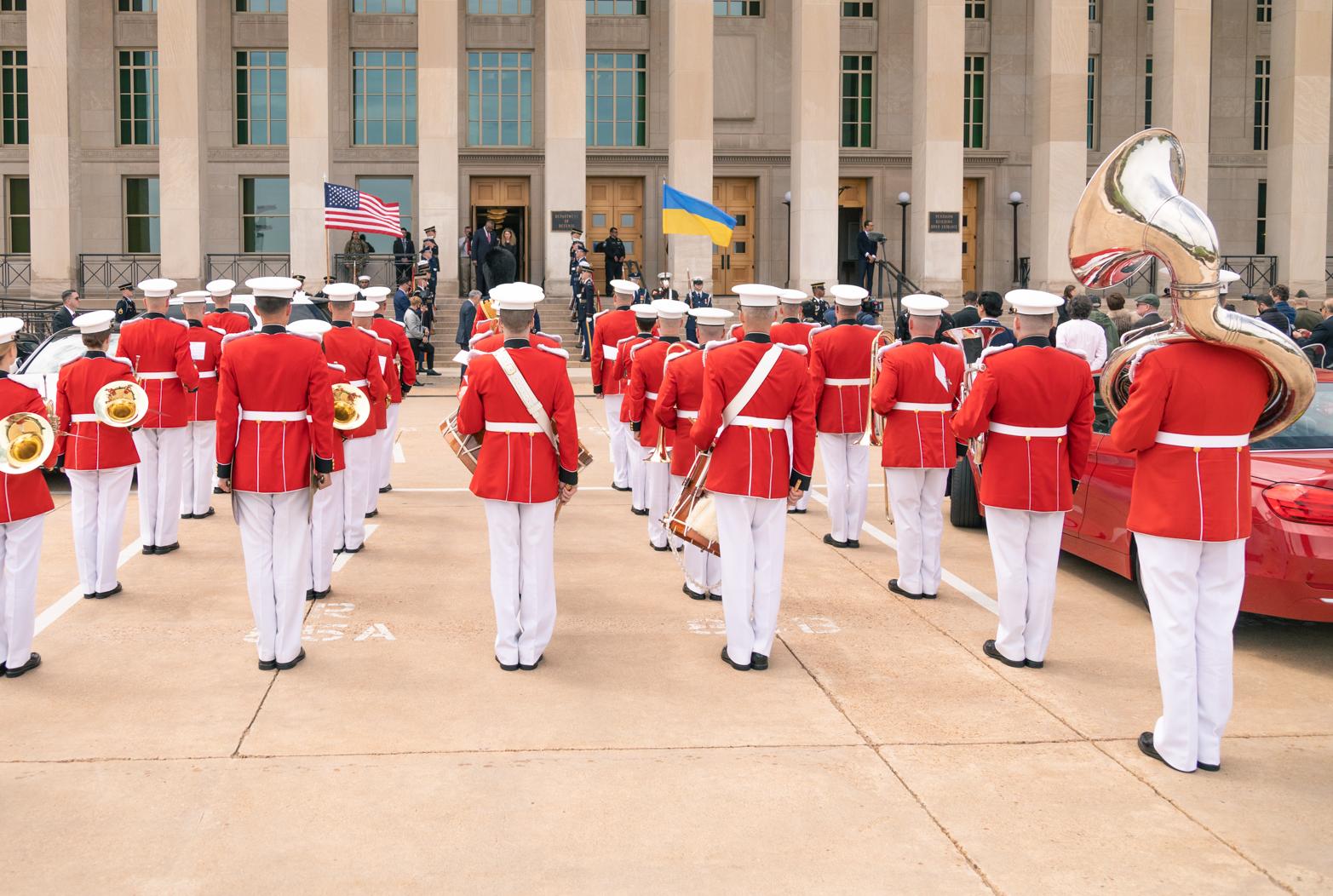
College Division Chair
Dr. Josh Byrd
Elementary Division Chair
Letricia Henson
Orchestra Division Chair
Krissi Davis
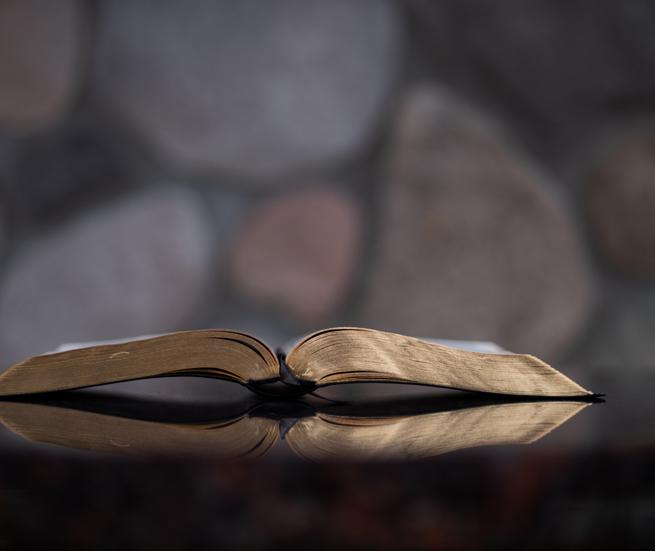
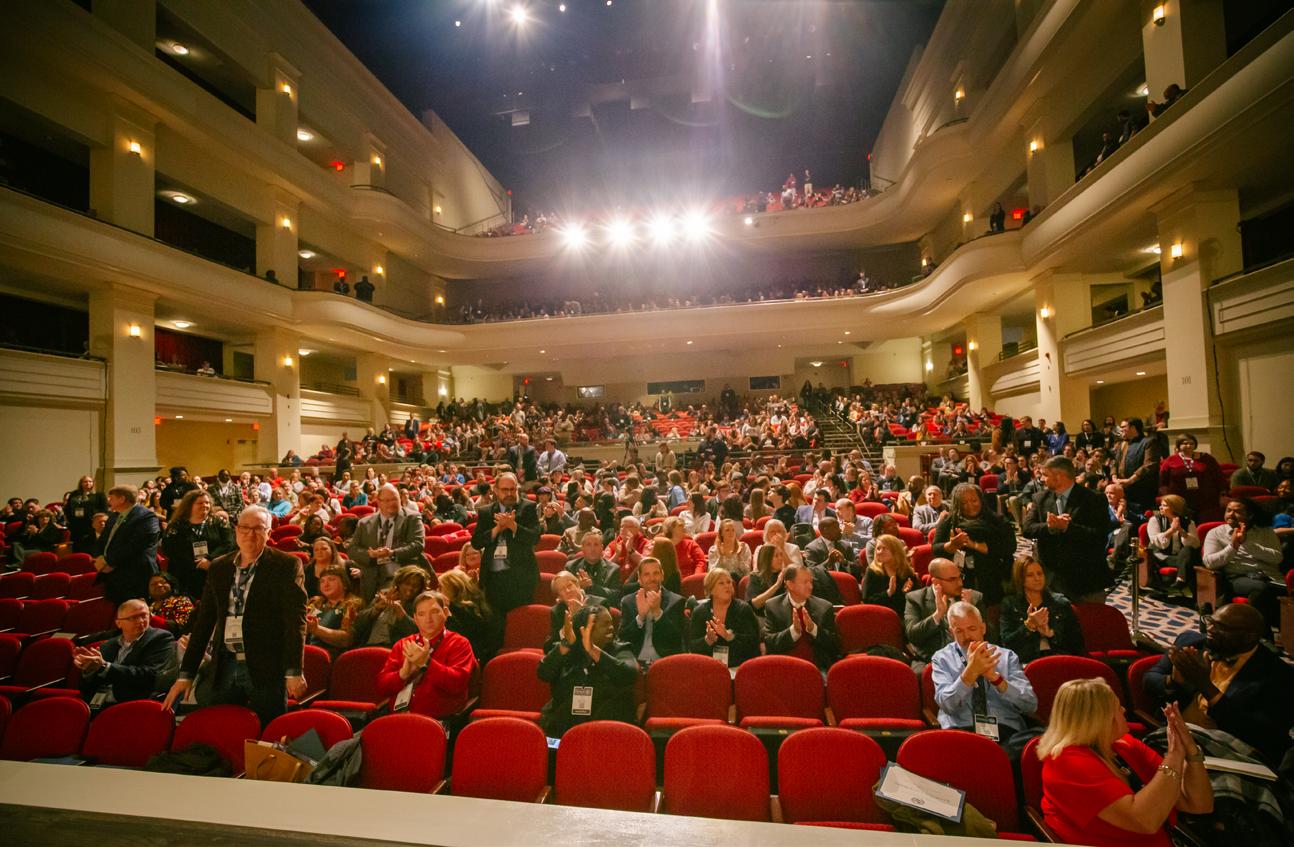
Laura
Advertising/Exhibitors
Cindy
ATLANTA SYMPHONY ORCHESTRA PAGE 3
BREEZIN' THRU INSIDE COVER
GEORGIA SOUTHERN UNIVERSITY SCHOOL OF MUSIC PAGE 10
GEORGIA TECH SCHOOL OF MUSIC PAGE 27
HARMONY EXPLOSION 2024 PAGE 15
PAGE

Last fall, I began my letter to you with Stephen Covey’s second habit in his book, The 7 Habits of Highly Effective People, “Begin with the End in Mind.” Over eight months later, we are now about to end the 2023-2024 school year, and what a year it has been! We have much to celebrate in GMEA this year because of the incredible hard work of you and your students. A few of those highlights include:
• The 2024 ISC continues to grow in attendance and participants!
• The Emerging Leaders Symposium had 34 potential future GMEA leaders participating!
• The High School Experience was our largest yet with 112 HS Juniors and Seniors participating!
• The debut and recognition of 14 District Music Educators of the Year!
• Event participation continued to increase in nearly all of our statewide events!
• The debut of the All-State Middle School Tenor/Bass Choir!
• GMEA now has over 3400 members and is one of the largest and most active MEA’s in the Nation!
• And much more!
The end of a school year is often a whirlwind of events, from final concerts to awards ceremonies. Amidst the busyness, it's crucial to take time to reflect on the journey and celebrate the successes achieved. Arthur Ashe said, “Success is a journey, not a destination. The doing is often more important than the outcome.” While trophies, ratings, and accolades are all nice, teaching is much more than just focusing on outcomes; it's about appreciating the growth and progress made by every student AND
ourselves. As music educators, we should not only acknowledge the highest achievers but just as importantly, recognize the journey and transformations of all students. Whether it's a student who overcame behavioral challenges or those who have shown improvement in their musical skills, every success story deserves to be celebrated. Take the time to show your students that their hard work and dedication have not gone unnoticed. A simple gesture, like a handwritten note or a one-on-one conversation, can make a world of difference in boosting their confidence and motivation.
Lastly, don’t forget about yourself! While recognizing others, it's also essential for educators to acknowledge their own accomplishments and growth throughout the year. Teaching is a demanding profession, and it's easy to overlook the strides made in our self-improvement and growth. Take the time to celebrate your advancements and remember that your dedication has made a difference in the lives of your students. Simply put, YOU MAKE A DIFFERENCE!
By embracing and honoring the journey of both students and teachers, we fully realize the transformative power of music education and help to pave the way for the future for all of us. That is much more powerful than any trophy or rating. I hope you have a restful summer, a chance to recharge, and can take the time to be with family and friends. Thank you for all you do for music education in Georgia and for your students’ futures. It is an honor and blessing to serve you, and I am very thankful for GMEA!

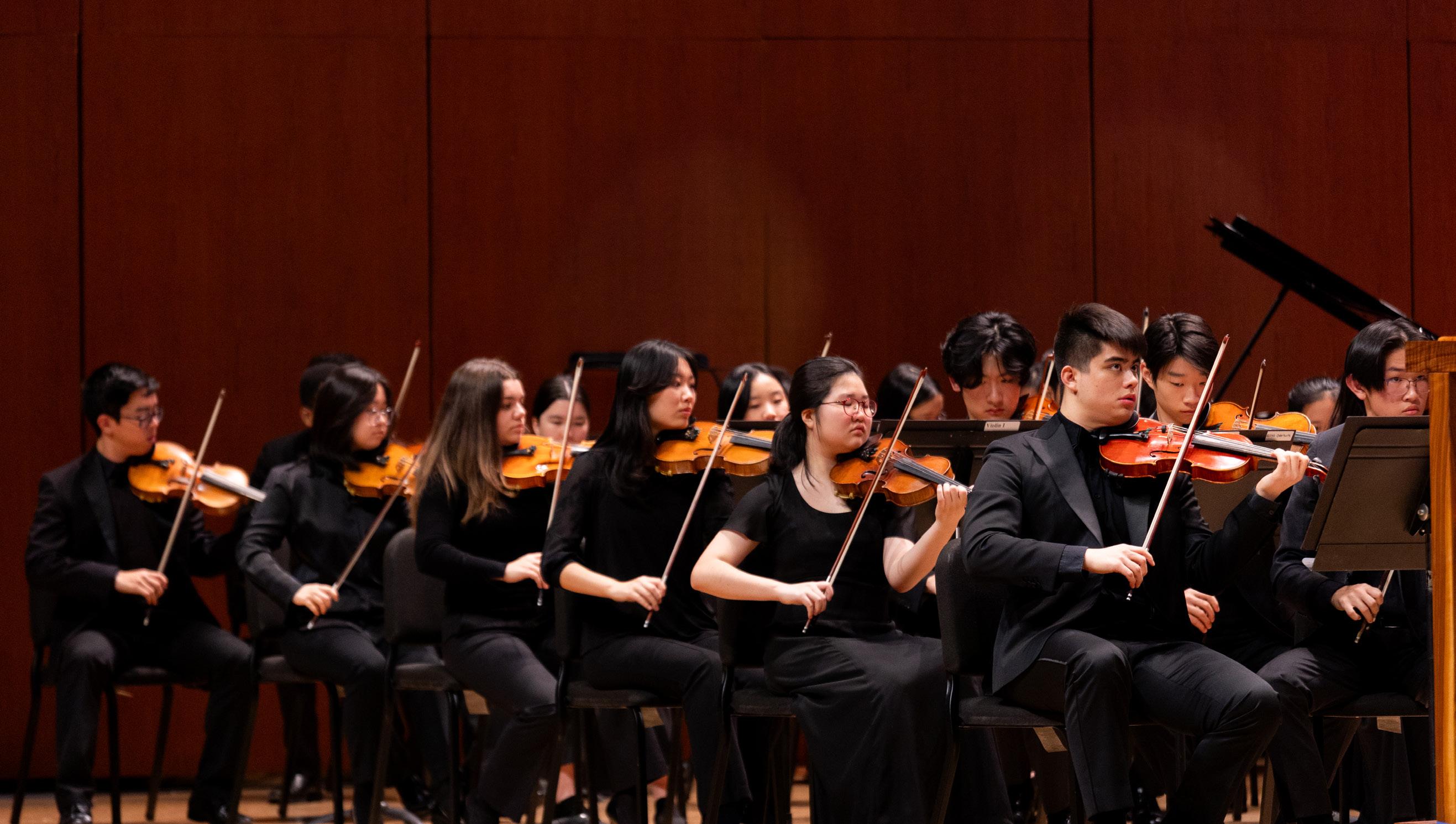
Established in 1974, the Atlanta Symphony Youth Orchestra is celebrating its 50th season! The Orchestra, composed of the region's most talented student musicians, will share its craft during three public performances in Symphony Hall. This season the Atlanta Symphony Youth Orchestra is under the musical direction of William R. Langley with support from ASO musicians and guest artists.
Learn more about the ASYO at aso.org/asyo
SAVE THE DATE
MAY 11 | 2pm FINALE CONCERT & ALUMNI HOMECOMING
Atlanta Symphony Hall
This concert celebration includes performances by your ASYO, alumi and former ASYO Music Directors Michael Palmer and Jere Flint. Following the performance, everyone is welcome to attend a special ASYO 50th Anniversary reception.
We have received a tremendous response to our Alumni Survey, and we’d love to hear from more of our ASYO friends.
You can find the ASYO Alumni Survey at aso.org/asyo
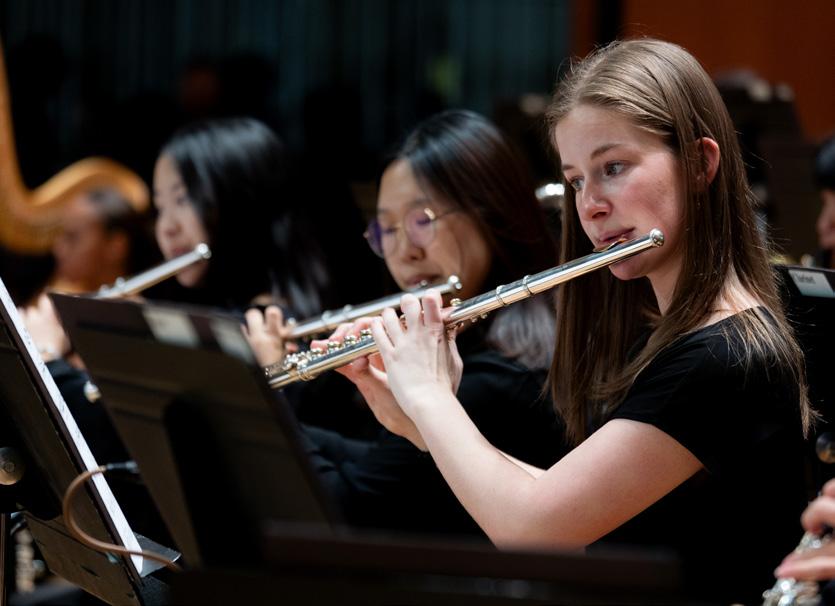
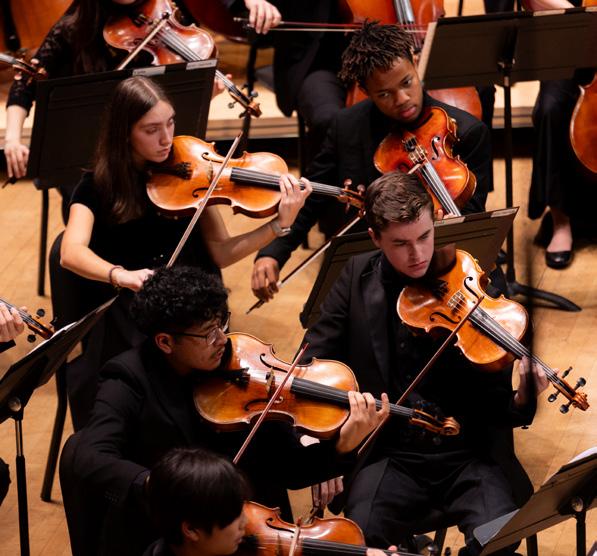
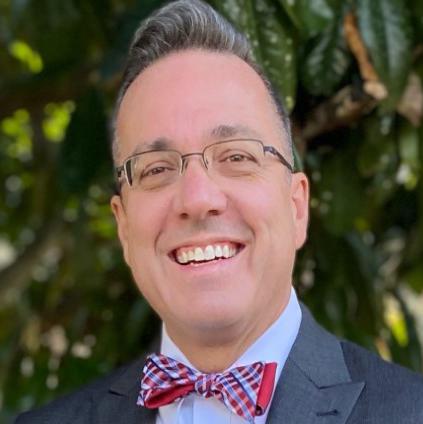
Happy Spring! As I type this, it is the week before Spring Break and our 2024 Large Group Performance Evaluations across the state are just now coming to a close. I hope every director who had ensembles perform at one of our more than 70 LGPE events had a good experience and that they and their students experienced growth. It really is about that. I have long subscribed to the understanding that, as Ursula K. Le Guin wrote in 1969, “It is good to have an end to journey towards; but it is the journey that matters, in the end.” That journey is what is truly important and what ultimately makes the difference for each of us and our students.
Many people look at the ratings received from the adjudicators as a type of summative evaluation, when in actuality, the purpose of our evaluation process is formative. In fact, sitting in a professional development meeting several years ago, studying formative and summative numbers being shared by an assistant principal, it hit me – It’s all formative until they put us in the ground. And ever since that moment, that thought has been my mantra.
When I began serving as Executive Director, a goal I set for myself was to be visible and engaged. As I have noted in this space previously, I am fortunate the Executive Committee has been supportive of me achieving that goal and I continue to work toward fulfilling my pledge. It is with great pride I can tell you that between the 2023 and 2024 LGPE “seasons,” I have attended 24 events, at least one in each GMEA district.
While traversing the state, I have visited with directors, volunteers, adjudicators, fine arts coordinators, administrators, and students. One thing is clear – there is fine teaching taking place and great music being created across Georgia. I am and have long been thankful for the role GMEA plays in that. Another aspect of our performance evaluations and everything we do is that none of it would happen without the hard work and dedication of countless volunteers. It is those members I would like to address and thank in the next few paragraphs
My friend Erik Mason noted recently, “There is no right way to do LGPE. There are certainly wrong ways, but there is no one set of expectations that we should hold every group to in order to measure success.” His point was directed at directors, specifically band directors, but it certainly applies to chorus and orchestra directors, too. When I read it, however, I began thinking how it might apply to those of us who organize, operate, host, and manage LGPE events.
First, I would like to thank all those members who annually take on the task of organizing events. There are countless directors and students, and parents for that matter, who may never even consider all that goes into ensuring warm-up, performance, and sightreading spaces are ready, adjudicators are in place and have what they need, programs are provided, score sheets are prepared, and all the other things that happen behind the scenes in order for an LGPE to take place. As one charged to keep an eye on the budget, I appreciate everyone who worked this last year to manage costs and to pay closer attention to the fiscal aspects of the operation of our events. But most of all, I want to thank each and every one of you who makes it happen.
Having visited eleven choral, seven band, and six orchestra events, Erik’s point could not be more clear to me. What has been truly enlightening is how within the prescribed framework of our evaluation events, there are aspects that are quite different. Sightreading, for instance, is different for choirs than it is for bands and orchestras. As a longtime band director, observing the “study time” at a Chorus LGPE is quite enlightening. Also, at more than one choral event, I found myself applauding between the two pieces when the custom in those districts is to sit quietly. I learned quickly and adapted.
But the one thing I found myself thinking as I drove away from each and every event is this – we have wonderful, dedicated people teaching terrific kids from Cairo to Augusta, from Jesup to Carrollton, and all across our great state. Music continues to be special and I am fortunate it has been such a huge part of my life.
On my way home from the last LGPE I attended on March 27th, I was able to stop by and visit with the man who introduced me to what was then known as festival. Mike Puckett was my band director from 5th grade through 9th grade, and he continued teaching me tuba lessons through high school. He even came to my Senior Recital at the University of Georgia. As special as music is, I have never lost sight of how special it is that music teachers shape the future. I am thankful for each music educator who has been part of my journey.
Best wishes as the end of the school year approaches. Hopefully, the summer will provide an opportunity for you to recharge and relax. Your GMEA office staff is already working to make next year successful. Please let us know if there is anything we can do for you.

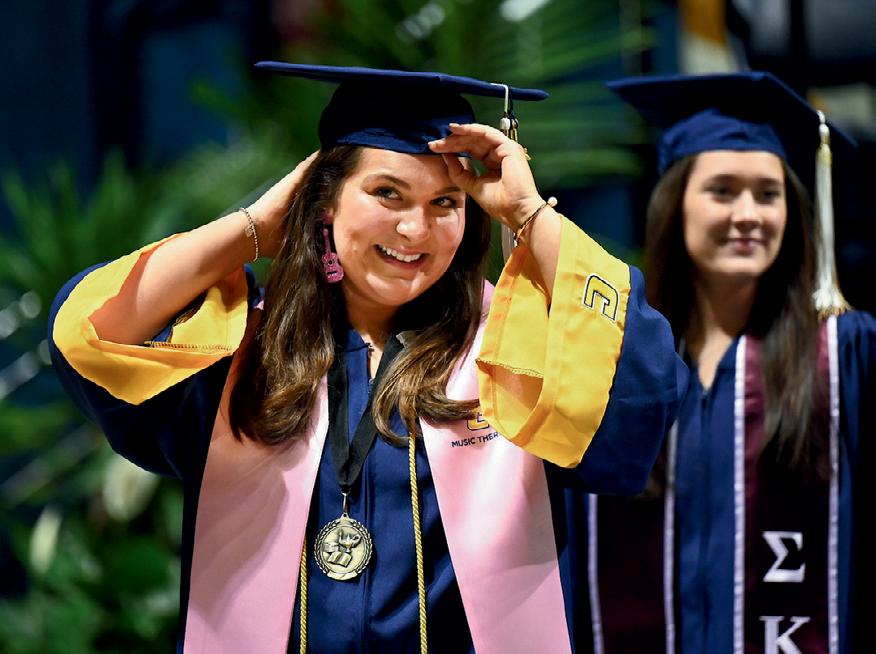
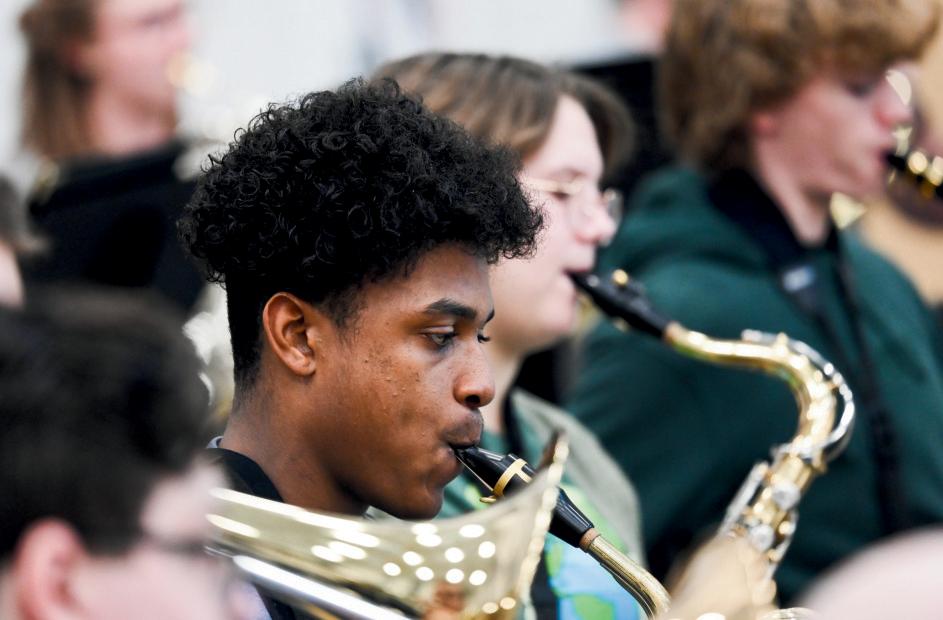
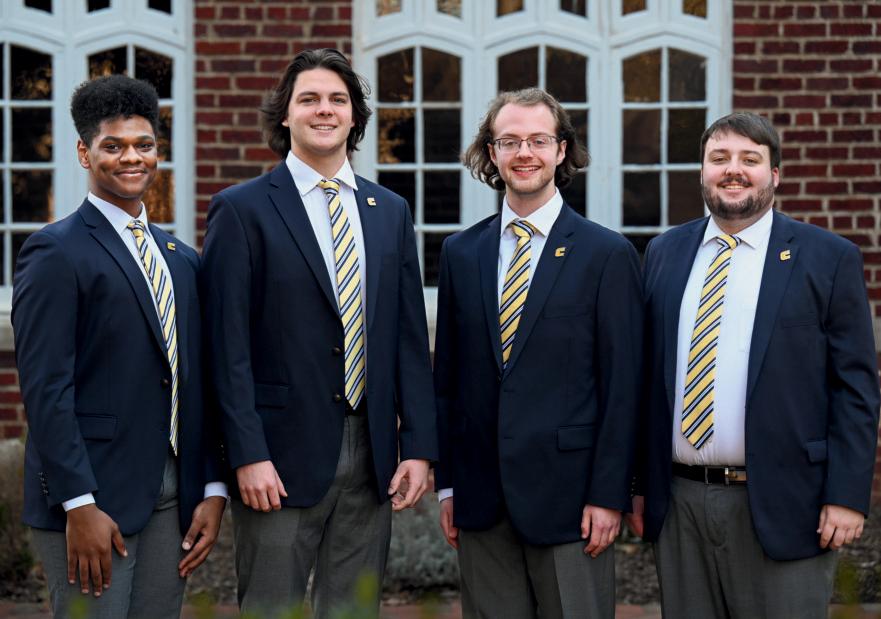

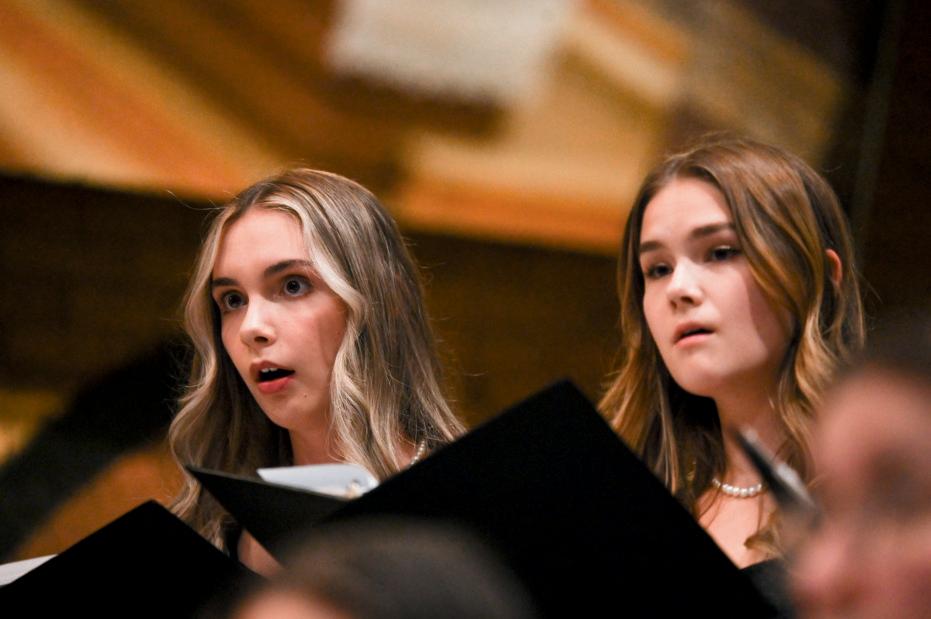


Bachelor of Arts: Music
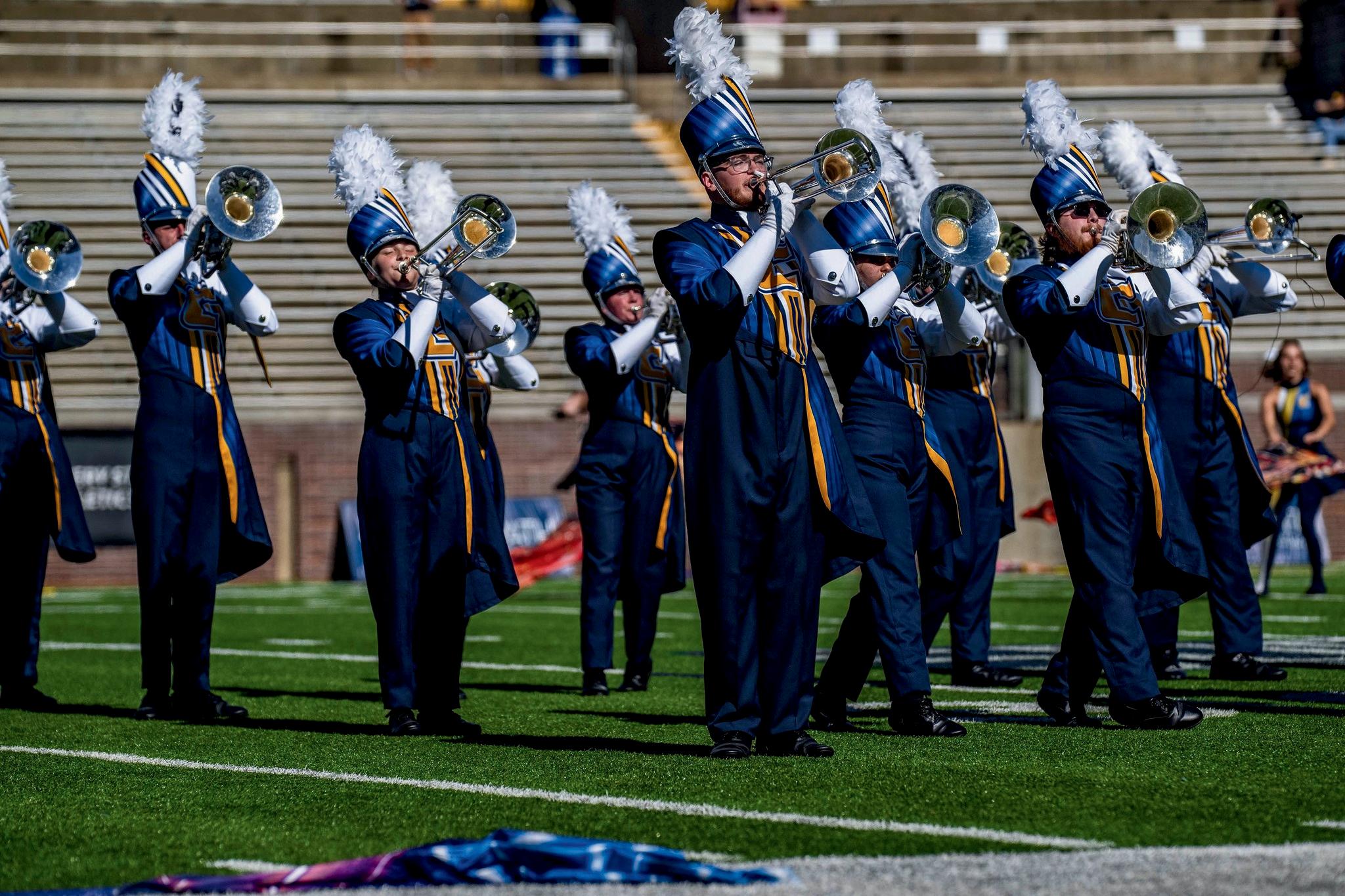
Bachelor of Music: Music Therapy
Bachelor of Music: Music Education
Bachelor of Music: Composition
Bachelor of Music: Performance
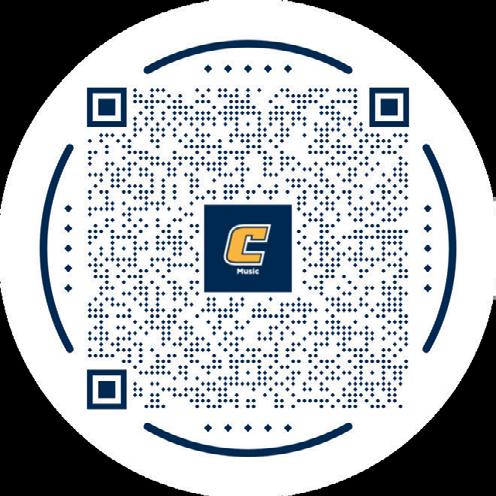

As we near the end of the 20232024 school year, I hope this has been a great year of musicmaking for you and your students. Personally, I was inspired by the many fantastic performances at this year’s In-Service Conference and am eagerly looking forward to what 2024-2025 will bring (after some much needed rest and relaxation, of course). Before we dive into the excitement of planning for the new year ahead, I urge each of you to prioritize self-care during the upcoming summer break. As Oprah Winfrey wisely said, "If you neglect to recharge a battery, it dies." Be sure to take this time to unwind, rejuvenate, and reflect on your personal and professional growth over the past school year.
While we navigate through the inevitable challenges and changes that each year brings, let us never lose sight of the profound impact that music has on the lives of the students we teach. The value it adds transcends any numerical rating, competition accolade, or standardized test score. Our commitment to nurturing their musical abilities and fostering their passion for music embodies the essence of this year's conference theme: "Their Future is our Mission."
I’d like to take this opportunity to congratulate the programs that were recipients of the Georgia Music Educators Association Exemplary Performance award in the Band Division. The application and requirements for this award are available in OPUS, under the Applications and Forms link.
Buford High School
Erik Mason and Bridget Wildes, Directors
Carrollton High School
Chris Carr and Zachary Nelson, Directors
Cambridge High School
Daniel Scott and Michael Makrides, Directors
Lambert High School
Tonya Mashburn and Kevin Morrison, Directors
Thomas County Middle School
William Majors and Ryan Booth, Directors
Trickum Middle School
Robert Davidson and Jessie Matthews, Directors
Valdosta High School
Travis Kimber and Andrew Hill, Directors
Wishing you all a restful and rejuvenating summer!
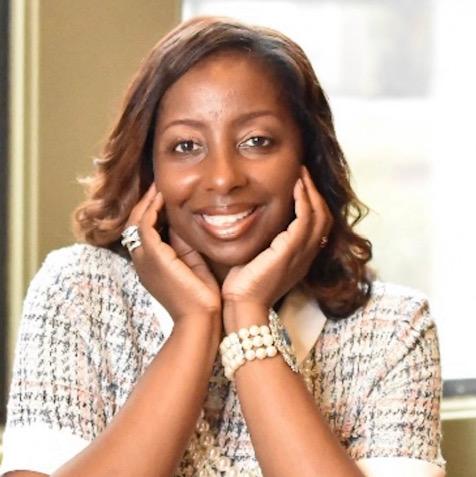
Greetings! What an exciting year to work with each of you on the Shining Bright Adventures of the Elementary Division of the Georgia Music Educators Association. We had so many exciting moments from the In-Service Conference in Athens to witnessing all the ISC presenters including Franklin Willis, Andy Beck, Mary Knysh, our GMEA member presenters, and a big thank you to all the volunteer host and presiders for every session. Also, thank you for the huge attendance at the Statewide Elementary Honor Chorus in Clayton County. Again, thank you directors for preparing your students for this annual event. Thank you always to our GMEA Executive team, Dr. Kay Pace, Dr. Jordan Cox, Statewide Organizers, accompanists, Mr. Vicorie Brown, Dr. Kelly Jackson, students, parents, and all the additional hands that have made the annual Statewide Elementary Honor Chorus possible. Furthermore, a huge thank you to the Elementary General Music Council for your hard work and dedication. Please stay tune for the upcoming year’s events and deadlines.
This has been a year of highs and lows; some of you know that my mom passed in June of 2023 very unexpectedly. When I did not know if I could make it, the members of GMEA executive board, members at-large, past Elementary Chairs, council members would remind me that I am not alone. In the words of Brene Brown, “One day you will tell your story of how you overcame what you went through, and it will be someone else’s survival guide.” To our members: love your family, take care of yourself, and know you are not alone when you are a member of the greatest music organization in Georgia.
Stay the course and always feel welcome to reach out to me at elementary@gmea.org.
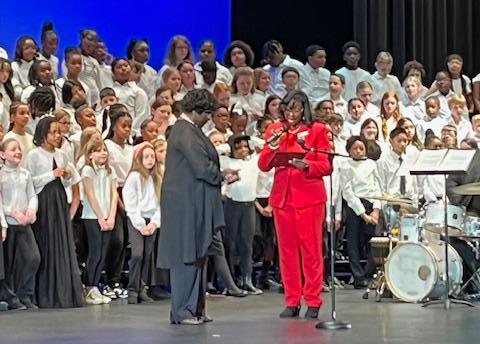
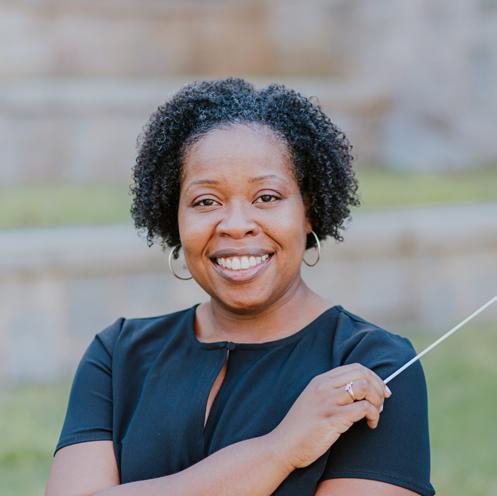
Happy Spring!
If you are a first year teacher, you made it! I hope your year was happy, successful, and one of growth. If you are retiring at the end of this year, I wish you all the best as you enter a new phase in your life. To everyone in between, I wish you a restful and rejuvenating summer break. As we wind down the school year, please be mindful of end of year reminders:
1. Please make plans to attend your district GMEA Spring meeting. This is usually where plans are made for the next school year. You definitely want to make sure your voice is heard during this time.
2. ISC Performance and Session Application DeadlineMay 14, 2024
3. LGPE List Submission Deadline- May 15, 2024
As I close out my first year as Orchestra Division Chair, I want to take a moment to thank every volunteer that made this year possible. If you hosted or organized district level all-state auditions or LGPE, I extend my gratitude. I would like to especially thank Stephen Lawrence-Carroll (past Orchestra Division Chair) for taking my early morning and late-night phone calls. One of the conductors for 2025 All-State Orchestra remarked that it was, “so refreshing to work with an organization that is so organized.” This is definitely a team effort, and I am proud to be part of the GMEA Orchestra team! Have a wonderful Summer Break!
P.S.- I cannot wait to announce the 2025 All-State Conductors!

Happy Spring! Before talking about the future, I would be remiss if the wonderful work by Dr. Alison Mann, Dr. Daniel Bara, and Dr. Robert Ambrose was not mentioned. Our division was again able to present two conducting clinics (first established by Dr. Chester Phillips last year) at our January In-Service Conference. They were incredibly successful; the time and effort put in by these three clinicians was substantial, as was the work put in by the participants.
Moving forward, please let me know if you have any ideas as to how our division can contribute in other ways (and not only at the conference). “Closing the loop” is vital to our profession, and college plays a pivotal role. If you get a chance to attend your local District meeting, this is a perfect opportunity to get a feel for the needs of the directors, students, and schools in your area.
In the meantime, I hope all of you have a wonderful end to your semester. Thank you so much for all that you do, and please do not hesitate to reach out!
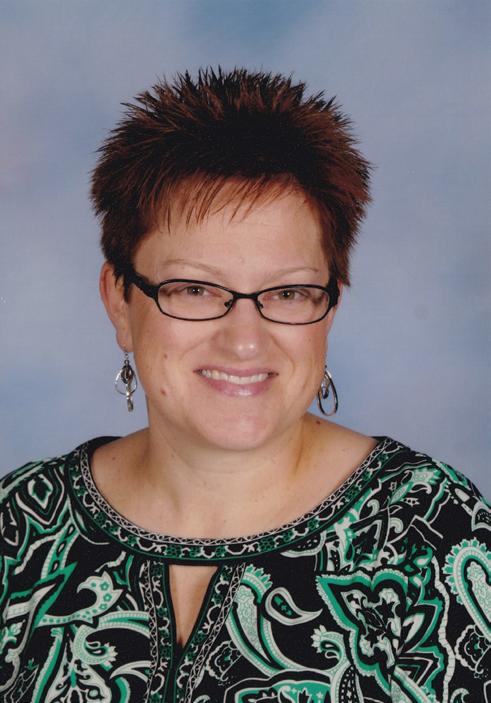
Spring has sprung, the bell has rung, and school is almost over! As many music teachers know, this is the time to start our planning for next year. Auditions and concerts, extra rehearsals and trips, we are always thinking ahead for our students. There is a place in music for everyone, and our duty is to prepare a
So much of our output looks effortless to our community and administration- they have no idea what goes into a quality music program! Learning to translate your passion for your work into discussing your craft takes practice and time. The ability to sell your work to an interested but untrained audience, however, is often key to securing funding, support, and additional advocacy.
What are you doing to talk your craft? Do you track enrollment numbers? Do you prepare a performance, and invite attendance at your performances? Do you have a thirty second sales pitch? And most importantly, do you have a Plan B when Plan A just isn’t working?
Secondary area music classes are growing and quickly becoming one of the main areas needing to be filled; they are also one of the first to be removed. Guitar, mariachi, music technology, modern band, and other music classes may receive strong school support initially and find that support waning in a few years. Making your program and classes indispensable requires clear communication around your rigor, standards, and passion.
In our post-Covid world, traditional ensemble numbers have started to rise again, and our secondary areas are often dropped for lack of class time. But as those programs drop, those students who found a home there are also dropped. How do we find a way to communicate their need, to maintain their musical home?
As content experts, your students, faculty, and community rely on you to facilitate the growth of these student performers. And you colleagues need you too! Please consider sharing your knowledge with a session presentation or feature your student performers at the 2025 GMEA conference. Applications are currently open!
Spring clean with an eye to the future that includes all our students. All the best as you finish your school year, and plan for what is next!
Best wishes for your fall and winter performances. We look forward to seeing you at the 2024 In-Service Conference and your guitar ensembles at the Giocoso Festival! If you are starting a program, or need support with a current one, please don’t hesitate to reach out!
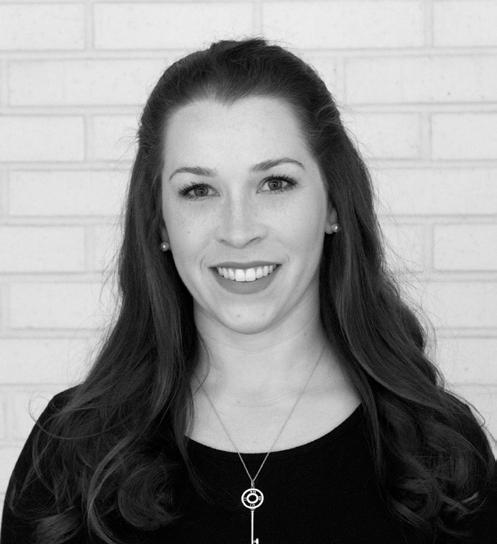
We have almost made it to the end of another school year!
This year, we piloted our new All-State Middle School Tenor-Bass Chorus, which was very successful under the direction of Mr. Daniel Gutierrez. I have also received positive feedback about this year’s In-Service Conference, LGPE, Solo and Ensemble, District Honor Chorus, and All-State/Statewide events. Thank you to all the teachers who volunteered to host or organize a GMEA-sponsored event, serve on one of our state committees or as a District Choral Chair, or assist in any way during a GMEA event. I know we are all busy and making time for “one more thing” is tough, but our organization is strong because of teachers like you.
I hope you will consider applying for next year’s conference as a performing group or session presenter. There is some tremendous choral talent in the state of Georgia, but we cannot accept those who do not apply. For interest sessions, our directors are wanting more on vocal pedagogy in the choral classroom, practical and diverse reading sessions, different ways to assess and grade students during a rehearsal, and sessions directed towards teachers who have been in the classroom 10+ years. Perhaps one of these is a strong suit or passion of yours. If you are on the fence about applying, take the leap! The application for both performing groups and session presenters can be found in OPUS (Home – Applications and Forms) and will close May 14th.
One of my biggest passions (and the ultimate reason I made the decision to serve in this role) is music educator support and advocacy. I believe that when teachers are supported and provided with the tools they need, they thrive in the classroom and for their students. I hope you have felt supported by GMEA this year. If you have suggestions on how to make the choral division even better, do not hesitate to send those ideas my way – choral@ gmea.org.
I hope your school year ends well and that you have a restful and relaxing summer break!
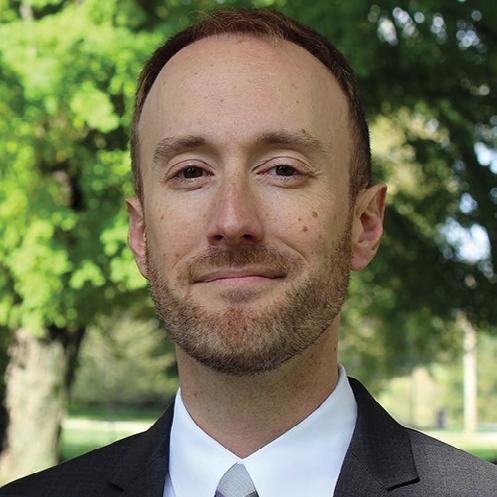
Have you checked out the latest updates on the GMEA website? We’ve recently added a History section (gmea.org/history). As the Historian, one of my goals is ensuring our Association's history is available and accessible to our membership. Please note, this page will continue to be under development as resources are added for public access.
Currently, the History section of the website includes several important sources of information, including A History of the Georgia Music Educators Association, 1922-1993 by James T. McRaney. Following his service as GMEA President, Vice President, and Choral Division Chair, James McRaney wrote his doctoral dissertation about the history of GMEA. He was also the Georgia Teacher of the Year in 1983, and recently passed away in 2021.
Another addition includes the Milestones and Memories document published in conjunction with the 2013 GMEA In-Service Conference and 75th Anniversary Celebration under the leadership of President Mary Land. This booklet includes memories from past GMEA leaders reprinted from the Winter 1993 Georgia Music News, including Frank Crockett, Guyton McLendon, Pinkie Craft Ware, and Alfred D. Wyatt.
I also want to acknowledge the many contributions of previous Historian, Derik Clackum. Earlier this year, Derik and I met for lunch at the Marietta Diner, discussed GMEA history, and transferred several boxes of documents and records. Look for new additions to the website to come from Derik's work and service as Historian. Our Association is grateful for the time and energy he devoted for many years.
Finally, if you have any GMEA records or memorabilia that might fill in gaps in our archives, you can reach me at koperniak@gmail.com. Best wishes for a safe and happy summer!
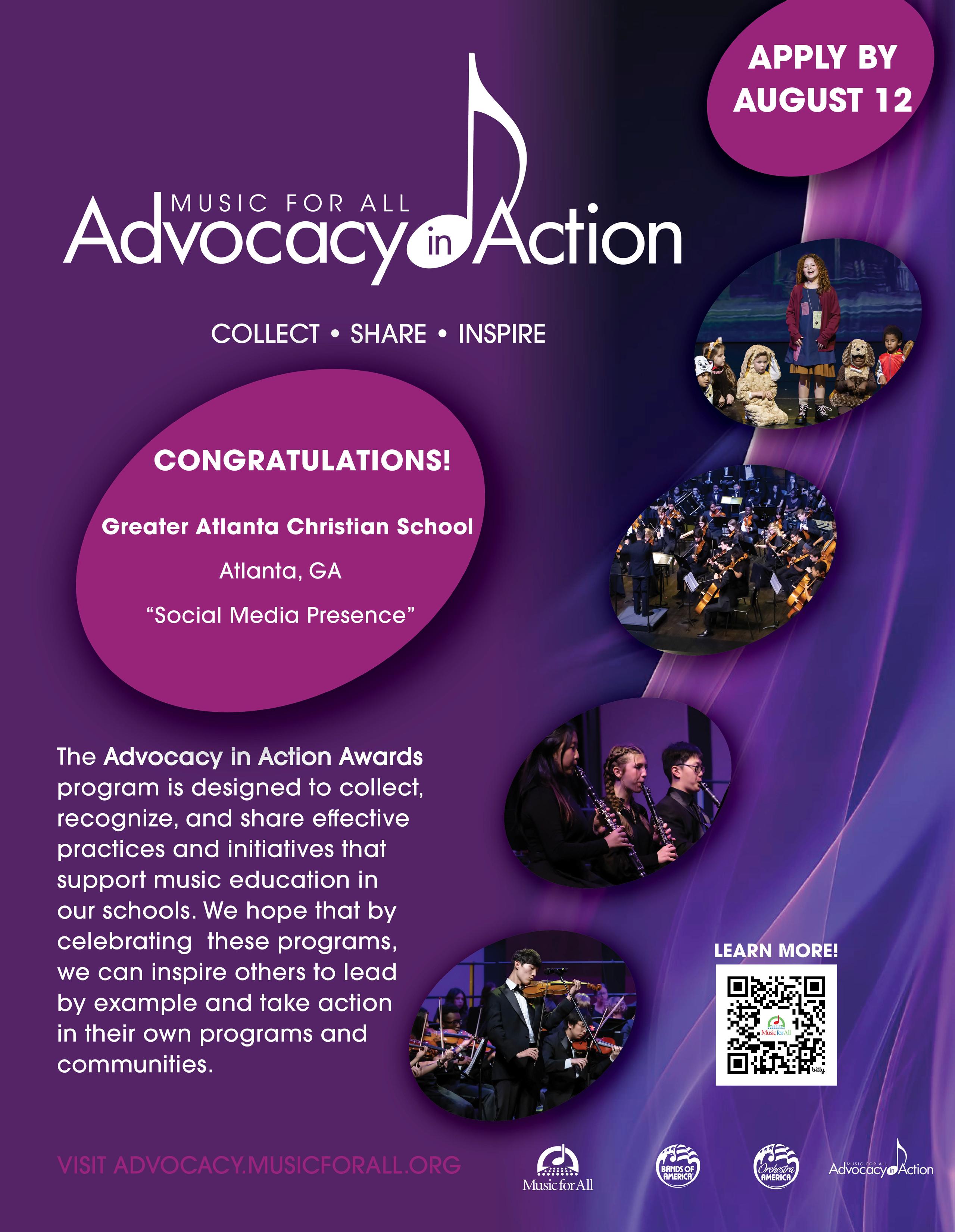


It is my pleasure to share a wonderful role model, teacher, friend and colleague in this Spring edition of the Georgia Music News. Susan Ahmad has never technically retired. She has simply moved from teaching full time to a position that allows herself more freedom to enjoy the benefits of retirement while still being a cherished music educator to all that know her. Here are her thoughts and observations:
Where did you grow up and go to school?
I grew up in Alpharetta, GA. I went to Alpharetta Elementary, Kimball Bridge Elementary, Milton High School, and Shorter University. I have lived and worked in Alpharetta my entire life! My grandfather, mother, my son, and I all attended Milton HS in Fulton County. My favorite things in school were band, where I played the flute, and chorus. I also enjoyed ballet, tap, church choir, and piano lessons. I met my husband at Shorter University. He was studying graphic design and business…and I was studying fine arts.
Tell us anything you would like for us to know about your interests beyond music (friends, family, hobbies…)
I am very active in my church. I lead the women’s ministry, teach women’s Bible study, and am the minister of music. I enjoy time with my family. We like to travel overseas. We also enjoy Atlanta area sports! I love living near Atlanta because we are able to enjoy so many wonderful arts experiences including: musicals, the symphony, the opera company, the ballet company, and amazing concerts!
Where did you work up until you retired from full time teaching?
I taught all thirty full-time years in Fulton County. I was at Lake Windward Elementary school for 29 of those 30 years. I served on the leadership team for the Fulton County music department all of those 30 years.
Since retiring from teaching full time what have you been doing?
I continue to work part-time as a music teacher at
Lake Windward Elementary and continue to serve on the music department leadership team. This is my 36th year. I also continue to be the minister of music at Clear Springs Baptist church. This is my 38th year.
What advice do you have for those who are considering becoming music teachers?
Always try to look at the bright side of things. Think more of your blessings than your burdens. Teach your students to love music the way you do. Follow the rules and don’t cut corners. Be an inspiration, not a stumbling block, for others. Do everything you can to impress your administration…from your actions, to your dress, to your willingness to volunteer and help others. Be proactive. Stay organized so things don’t get overwhelming. Share your ideas with others. Be super polite to your custodian! Don’t be afraid to reach out to other teachers for help.
What advice do you have for those who are retired or are about to retire from teaching music?
Stay active! Find a part-time job or serve as a volunteer. Do all things that you never had time to do while you were teaching full-time. Begin a new hobby. Reach out to people who you haven’t seen in a while and plan time together. Volunteer at your local school. Join a book club. Write an educational book or article so you can share your expertise with younger teachers. Create educational materials for Teachers-Pay-Teachers. Join a performing group! Support the arts by attending concerts or even ushering!
Please feel free to add anything else you would like us to know.
The most important things that I have learned as a teacher are: Be patient with others and with yourself, Plan more than you will need, Always be the “light” in someone else’s day, Strive for excellence in all you do, Praise your students and your school, and Take time to enjoy and be inspired by the Music!
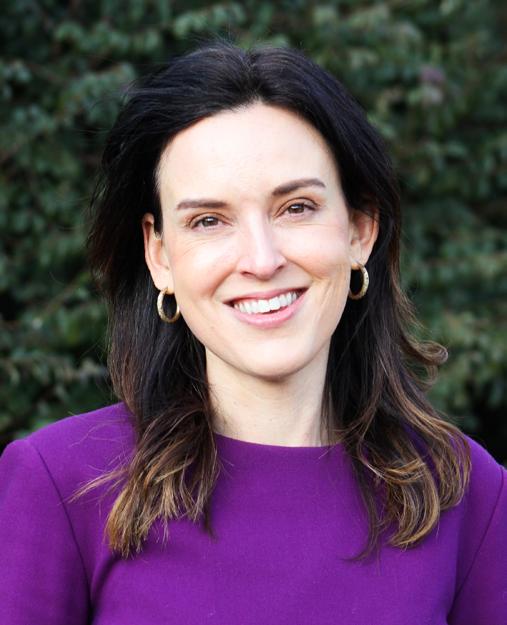
Christy Todd- Music Technology Teacher, 2024 Georgia Teacher of the Year & 2024 National Teacher of the Year Finalist
Named the 2024 Georgia Teacher of the Year, Christy Todd is a music technology teacher who believes every child has a creative superpower.
In addition to teaching classes at Rising Starr Middle School in Fayetteville, Georgia, Todd is the founder of her district’s Community for Creativity initiative, supporting schoolwide creation of songs, podcasts, videos, audio books and more, which are released through the school’s recording label, Hall Pass Entertainment. Passionate about building opportunities for all students to create, Todd launched a special music collaboration between fine arts and special education classrooms that has impacted more than 10,000 students over the last 15 years.
Prior to teaching, Todd worked in business development in the nonprofit sector and draws from that experience to build connections between students, colleagues, families, and communities. She began her teaching career as a chorus director and still actively conducts honor choirs, along with publishing articles and research for various state, national, and international education journals.
Todd’s career recognitions include 2013 Grammy Music Teacher of the Year National Quarterfinalist, 2016 Georgia Middle School Association’s Teacher of the Year, 2022 Fayette County Public Schools Teacher of the Year, and, recently, she was named one of four nationwide finalists for 2024 National Teacher of the Year. Todd received a Bachelor of Music Education from Shorter College, a Master of Music Education from Florida State University, and currently resides in Griffin, GA.
1. Please tell us a bit about your musical background and teaching experience.
I knew that I loved music from an early age. On
my first day of kindergarten, I wore a hot pink dress with piano keys featured prominently across the front. I love this photo- it reminds me to never lose sight of your childhood dreams.
I have a Bachelor of Music Education degree from Shorter College and a Master of Music Education in Choral Conducting from Florida State University. I started my career at Starr’s Mill High School as an assistant chorus director (2 years) and then became the Director of Choral Activities at Rising Starr Middle School (7 years). I have spent the last six years facilitating Rising Starr’s Community for Creativity initiative which includes teaching music technology.
2. What first drew you to music education?
In 7th grade I changed schools. That’s a pretty awful time to be the new kid. My chorus classroom gave me a home where I felt safe, included, and confident. In high school, I had an amazing chorus director (Janice Folsom) who encouraged me to become a music educator. In fact, she let me sign up for men’s chorus as a senior in high school where I served as her assistant. I guess you could say that was my first teaching gig.
3. Who has been the biggest influence on your teaching career? What lessons did you learn from them?
As mentioned previously, my high school chorus director Janice Folsom and my professors at Shorter College and Florida State University had a huge impact on my teaching career. But I would also be remiss if I didn’t mention two people who gave me lots of room early in my career to make mistakes.
I student taught with Scott Martin at Woodstock High School. I will never forget my first day on the job. He told me that I would take over conducting the Beginning Women’s Chorus. When I asked him what repertoire they were performing he said, “I don’t know. You’re the director. You have a day to figure it out.” Talk about somebody trusting you and giving you space to grow! From Scott, I learned to be fearless, to jump in and do the work without worrying about making mistakes.
Another major influencer in my life is John
Odom, a former GMEA President. As an Assistant Chorus Director at Starr’s Mill High School, my first teaching job was working with John since he as the Director of Choral Activities. Our men’s chorus had a GMEA InService performance that year. I was able to work alongside John to provide support while at the same time witnessing the work ethic and high expectations necessary to have an ensemble perform at that prestigious level. Then in 2018, my Rising Starr Middle School Men’s Chorus sang at the GMEA In-Service Conference. John was still there, providing an extra set of ears during after school rehearsals and heading up the cheering section during the performance. It was a full circle moment.
4. What have been the biggest changes to music education in the course of your career?
I teach music technology and my current job would not exist without the technological advancements that have happened in the last 20 years. I vividly remember seeing my first iPod (a precursor to the iPhone) and it felt like I was struck by lightning- I knew my life would never be the same. I am amazed at the ease of access our students have to listen to and create music. They will never know the angst of convincing your mom to take you to Walmart to buy a song on tape or waiting for hours by the radio praying they will play your favorite song.
My hope is that music educators will take advantage of students walking around with mini-recording studios in their back pocket. We live in such an amazing time where we have technology at our fingertips that can support budding composers and songwriters. What an exciting time to be a music teacher!
5. How has your teaching philosophy evolved throughout your career?
When I first started teaching, I was really driven by the goal of musical perfection. Fortunately, something happened my first-year teaching that forever shifted my mindset. At my first Large Group Performance Evaluation, I had a student who suddenly started singing off pitch. It was a student mainstreamed into my classroom who received special education services and had a hearing impairment. A comment on the judge’s sheet asked “if this was the right place for her?”
That comment changed my life. I was failing as a teacher to meet the needs of all of my students and was only building concert experiences that demanded “musical perfection.” I learned
firsthand that this was an exclusionary practice that didn’t celebrate the strengths of all learners.
I partnered with the special education department to build a special music program. The special education department taught me about Universal Design for Learning and teaching through the senses. AP Music Theory students stepped in as music mentors. We started designing inclusive concert experiences, that focused on showcasing student musical growth, not necessarily musical perfection.
Fifteen years later, the Special Music Collaborate program has impacted over 10,000 students as either performers, music mentors, or supportive audience members. We work cross departmentally in our school to build opportunities where all students can shine. So, I guess you could say that my philosophy of teaching has shifted from “music first” to “people first.” But the most amazing thing happened, when I prioritized student growth, the quality of music making in my choirs improved as well. When we take time to meet the needs of each of our students, we become better teachers.
6. What has been the proudest moment of your teaching career?
Moments where you see pure joy on a student’s face- where you know you helped them achieve something that they could never have done on their own. I think of Jack, showing his friends his original song streaming on Spotify. I think of Bobby, playing the piano part on an iPad to Imagine Dragon’s Believer while his peers sang along. I think of Mahri, who learned how to play bass for one of our shows and is now majoring in music in college. My proudest moments are my students’ proudest moments.
7. What wisdom/experience/skills do you hope to have impart on your students when they leave your program?
As a music technology teacher, I want my students to walk out of my classroom as creators: empowered to dream, make, and launch their ideas into the world. I think this is so important, especially in middle school. If students feel like they have autonomy to create music, my hope is that they will feel empowered to also create a life of purpose and passion.
8.Is there a particular musical work or composer to which you feel all students should be exposed?
Okay, this is definitely not going to be the answer that you were expecting. Have you ever heard of the band Axis of Awesome? They are basically a cover band famous for their Four Chord Song mashup. They play dozens of popular songs using the C, G, Am, F chord progression over and over. I always play this song (the clean version) for my students and it blows them away. They realize how much music depends on patterns and if they can identify those patterns, they too can write a hit song. After they are hooked on the concept, I teach them how to play the progression and they write their own song to this progression, composing their own melody. So, if you are reading this and you want to tackle songwriting in the music classroom, Axis of Awesome will be your friend for life.
9. What advice would you offer teachers beginning careers in music education?
You don’t have to get an A at everything. I think we put so much pressure on ourselves to be
perfect. To have the most students at All State, to perform technically difficulty music, or to receive straight superior ratings at Large Group Performance Evaluation. Let it go. Decide on one or two things that really matter to youwhere you really want to get an A. Focus on improving those areas and celebrating student growth- no matter how small the progress. The rest will come. Build connections with other people around you who have walked a similar path and can help you. Learn alongside your students. Embrace the pain points- there is wisdom there to uncover.
10. What still inspires you about teaching?
I think teachers are the ultimate influencers. Individually, we might not have as many followers as Taylor Swift or likes as Mr. Beast, but our collective impact is far, far greater. Teachers change the future when we help students see their potential. And we are passionate about our work because at some point in our lives, someone did it for us, too.

A fun-filled weekend of amazing four-part harmony especially for high school singers & their music educators | July 25-28 | Clemson University Campus
HX’24 is a fun & exciting 3-day immersion in a cappella singing & barbershop harmony!
Rising 9th graders thru graduating seniors and their Music Educators will experience the best of 4-part singing taught by outstanding clinicians and quartets.
For Students:
• Learn part-independence
• Ear-training
• Grow confidence
• Perform on the Saturday Night Show.
For Music Educators
• Gain solid, usable teaching ideas
• Discover ways to generate excitement
• Attract singers to your program.
Affordable: Early Bird $129 for Students | Music educators attend FREE
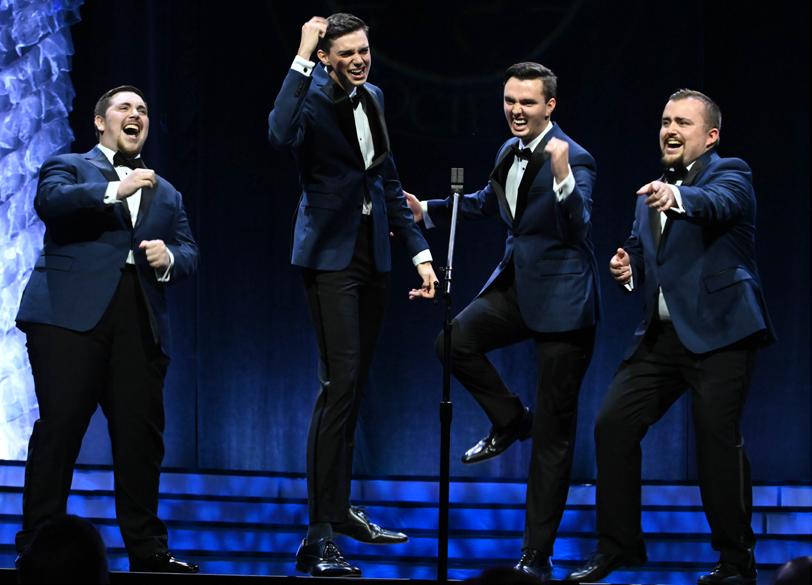
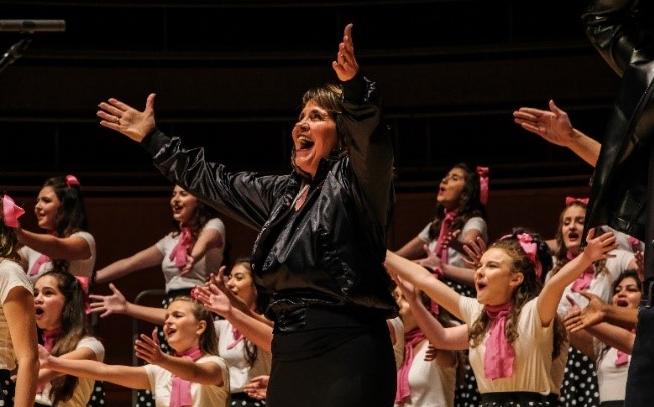

Registration includes: Three days/nights in Clemson University housing, all meals, sheet music and learning tracks, workshops on vocal techniques and song presentation, rehearsal of several songs (male, female, mixed) for a Saturday night public show performance, and camp t-shirt.
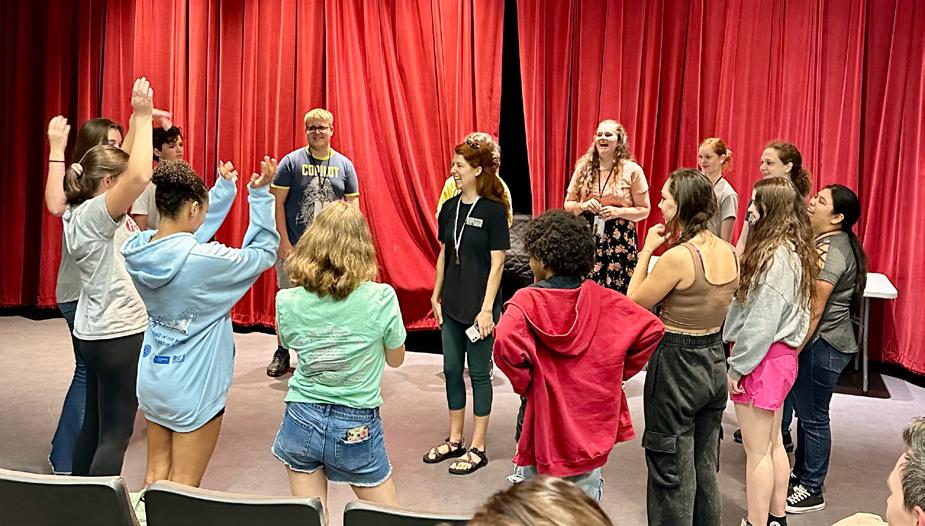
For questions or more information please email: hxlakeside@gmail.com Registration is Open: hxlakeside.org

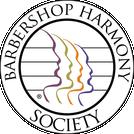
The Georgia Music Educators Association expresses sincere gratitude and warm congratulations to all of our retiring members for their committed service to Music Education in Georgia. The following members kindly responded to a retirement survey emailed to GMEA members on April 22nd. Know a retiree who should be recognized in the fall issue? Complete the survey HERE.
School GMEA Service
Pulaski Elementary Solo and Ensemble Organizer
Southeast Bulloch Middle
Esther F. Garrison School for the Arts GMEA Technology Coordinator, Arts Team Leader, District Honor Chorus Organizer Furlow Charter
The Westminster Schools
Roswell High School LGPE Site Host
Woodward Academy Solo & Ensemble Organizer, State Band Chair
Whitewater Middle
Fayette County High School 11-12 All-State Band Organizer, District 6 Band Chair, Solo & Ensemble Organizer
Coosa High School District 7 Choral Chair (2020-2022)
Catoosa County District 7 Band Chair, District 7 Treasurer, District 7 Jazz Honor Band Organizer, GMEA All-State Jazz Band Coordinator
Adairsville Middle School
Haralson County High,Haralson County Middle
Ridgeland High School District 7 Choral Chair, All-State Choir Host
Red Bud Middle School District 7 Honors Chorus Event Organizer
Ringgold Middle School, Ringgold High School Vice President for All-State, District 7 Band Chair, Host/Organizer of Multiple District 7 Events
Valdosta Middle School
University and the Spivey Hall Children’s Choir
Johnson Health Science and Engineering Mag
Greenbrier Middle School LGPE Site Host, Middle School District, All-State Audition Site Host
Thomson McDuffie Middle School
T.J. Elder Middle
Dodgen Middle School District Honor Band Organizer, District All-State Site Host
Pine Mountain Middle School String Jamboree organizer
Hillgrove HS
Compton Elementary GMEA Elementary Division Chair, Statewide Elementary Honor Chorus Organizer
Simpson Middle School
Garrett Middle School
Providence Christian Academy
North Gwinnett Middle School LGPE District Organizer, All-State Chorus Auditions Organizer, District 13 Choral Chair, State Choral Chair
Rabun County Schools
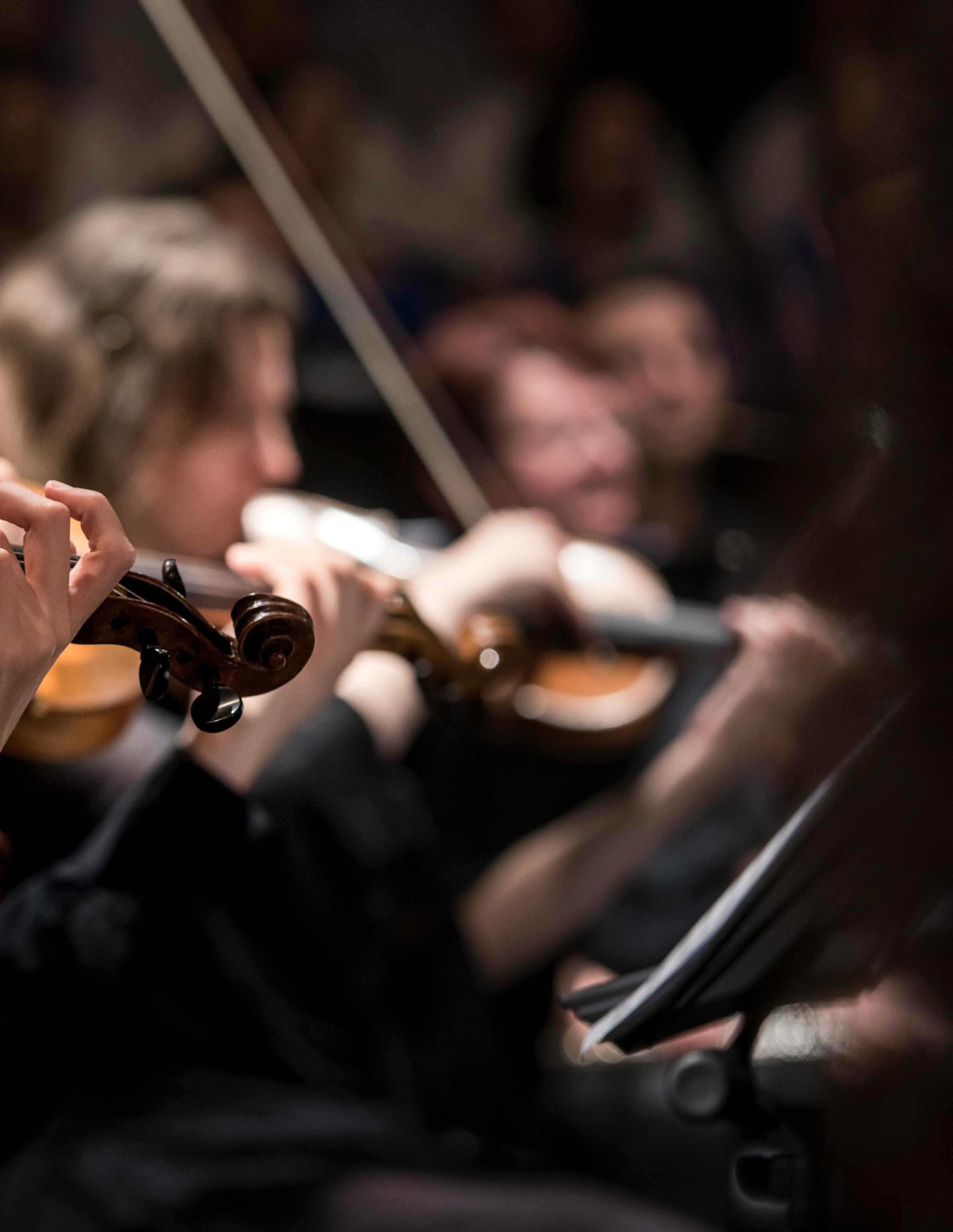
Recruitment season has come and gone and you’re soon to meet your newest musicians for their first days in your music ensemble. Most of these students are likely participating in one of the traditional ensemble forums of band, orchestra, and chorus for the first time and the excitement is palpable! It is important for us as music educators to lean into this excitement as students assemble their newly acquired instruments or receive a brightly covered octavo. So how do we bolster this enthusiasm as we transition them from the familiarity of the elementary classroom to the cacophony of an ensemble space? I propose we focus on some fundamental tenets of learning theory to remind us how to structure those first few lessons together through (1) utilizing prior knowledge (Vygotsky, 1978), (2) flipping the classroom to teach basic principles (Bergmann & Sams, 2012), and (3) singing, moving, playing (Gordon, 2007).
It is widely accepted that humans are inherently musical (Hodges, 2020) and the students we are teaching in secondary music classrooms have likely participated in some form of elementary music in addition to the exposure received in daily life (e.g., preferred listening, media, etc.). Not only are our students predisposed to informally engage with music as humans, but quite often they have also had some type of formal instruction as well. Lucky for us, we are not starting from scratch and determining our students’ prior knowledge will help us meet them where they are. In my work with pre-service teachers, we often try to place ourselves back at the point at which we knew nothing about playing an instrument or singing in an ensemble. This frequently results in teaching episodes that focus on assuming zero prior knowledge of a given concept and lessons become overly technical and lack connection to prior learning. As you might imagine, this approach can quickly take the proverbial wind out of the sails of excitement for music making. At this point, we may also remember back to our educational psychology courses, specifically Vygotsky’s Zone of Proximal Development (ZPD), to understand what students can achieve on their own (prior knowledge) and what they can learn with peer collaboration and/or teacher guidance (ZPD; see Figure 1; Vygotsky, 1978). We cannot begin to utilize this construct, however, until we establish what students already know.
There are many ways to determine students’ prior knowledge – maybe the most obvious would be to coordinate with your elementary specialist to learn what students

were working on and how those concepts were introduced and reinforced. Reviewing musical concepts in a manner similar to their initial introduction will likely achieve a positive response from students and aid in transferring concepts for use in your ensemble. As an example, students are likely familiar with the term “steady beat." Secondary ensemble teachers may refer to this term as the pulse, or the beat, or the fundamental division of time signatures. By accessing students’ prior knowledge (keep steady beat without assistance) and intentionally scaffolding to relabel the concept, we help them to create a connection rather than introducing the concept assuming students have no knowledge of beat.
Another approach to gathering prior knowledge is to test students through a structured evaluation. A team of researchers and music educators have been developing and refining the Model Cornerstone Assessments, which provide a comprehensive rubric to determine achievement and growth on the 2014 Music Standards (Burrack & Parkes, 2017). Even if your feeder program did not evaluate students with the MCAs, they are a valuable instrument to begin evaluating prior knowledge. These assessments are validated and have been shown to reliably evaluate student growth throughout their time in a music program. The 5th grade performing rubric would give you an idea of what your students may have learned previously in relation to performance and, of course, the MCAs as a whole serve as a valuable, ready-made tool for demonstrating knowledge acquisition at all levels (see link to MCAs in reference list).
Let’s say that the situation is not ideal and the students in your classroom have little prior knowledge of formal musical concepts and we are essentially starting from scratch – what do we do? The students in front of us signed up to be in an ensemble, play an instrument, sing music together – how is this possible with an almost blank slate of knowledge? A mistake I made in my first few years of teaching was to drop the idea of making music as a group until my students had a solid foundation of musical concepts. But are students void of musical knowledge and experience? Absolutely not! They have a perceptual and cognitive idea of these concepts and it is now time for us to bring awareness to those ideas, identify how they function in music, and play and sing them together through activities that do not require literacy (think: call & response, ensemble timing, blend & balance, tone, breathing). How can we manage to play together if we don’t have an idea about what we’re doing? – flip the classroom!
The flipped classroom is an instructional model where students interact at home with content that is traditionally covered in-class and complete homework in class (Bergmann & Sams, 2012). Trying to navigate the beginning technical aspects to get to the music making, particularly in instrumental classrooms, can be cumbersome: How do I put my instrument together? Where do I put my hands? How do I make a sound? How do I breathe? Many of these concepts can be facilitated through curation of online source materials – either generated in-house, maybe by older students, or obtained from reputable sources (for an ever-growing list of sources I’ve used, visit the QR code at the end of this article). Moving the procedural and content-oriented tasks outside the classroom will create space for skill development in class. In Bob Duke’s book, Intelligent Music Teaching (2019), he advocates for an emphasis on skill development that serves as a foundation to support musical playing across all skill levels.
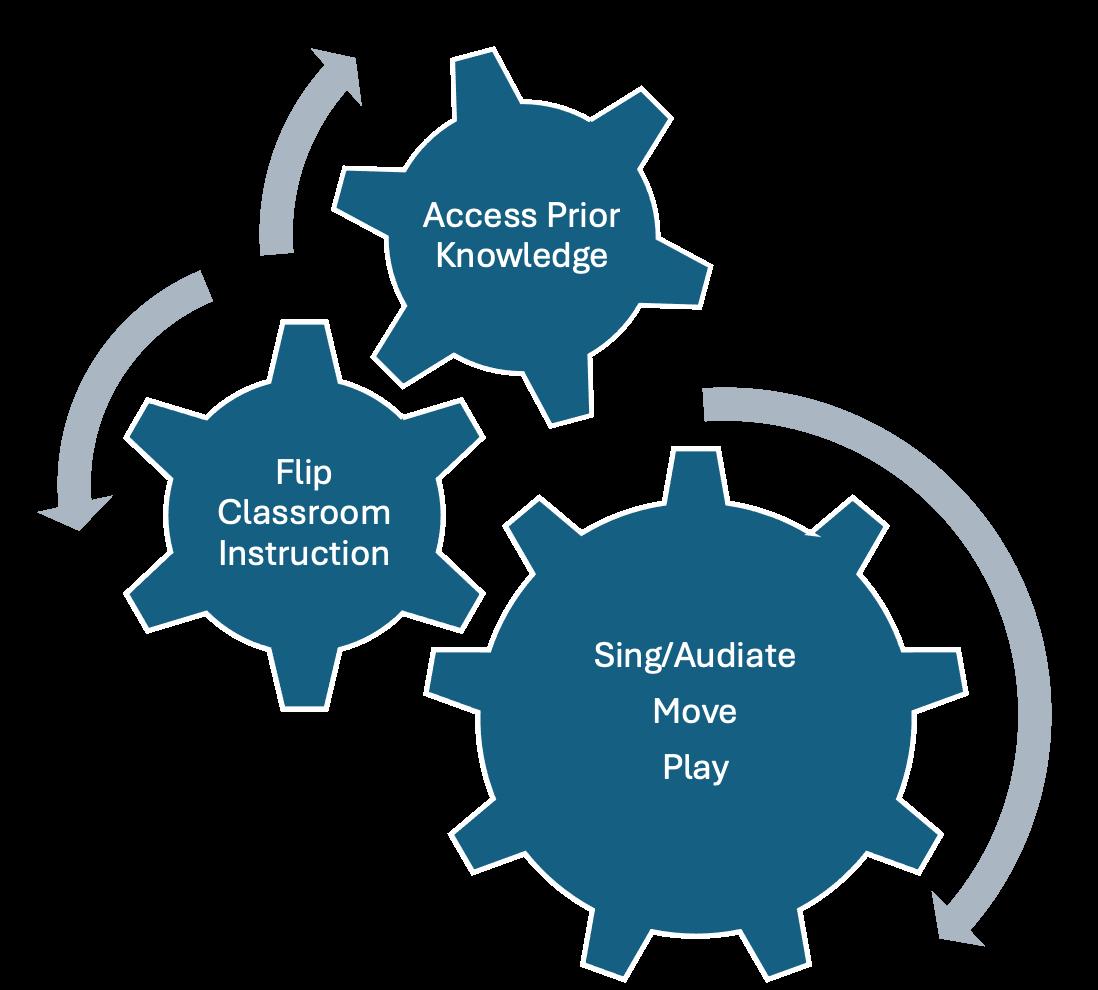
You may be hesitant to move the teaching of these concepts beyond the confines of your classroom. A variety of "what-ifs" may have popped into your head: What if students don’t have reliable internet access at home? What if they don’t do the outside work? What if the students aren’t able to understand what’s being taught? – this is where the social interaction aspect of Vygotsky's ZPD comes into play. Interacting with someone else who is adding perspective and knowledge enhances what the student is able to do on their own, potentially leading to a higher level of reasoning (Vygotstky, 1978). Additionally, a recent systematic review by Akçayır & Akçyır (2018) suggests that establishing clear guidelines on how to interact with pre-class material and providing spaces for students to ask for help (e.g., discussion boards) support students in completing and understanding tasks outside of class.
As you might imagine, flipping the music classroom does not eliminate the need for procedural and content-focused instruction during rehearsal, but it does allow the time spent on those activities to become more student-oriented. Any change to the way we teach requires a good deal of forethought, but the potential benefit of creating time for in-class musicianship and skill building is an important trade-off on the path to developing independent musicians. So, what do we do now that we’re considering this new approach? We lean on singing, moving, and playing!
After considering the importance of accessing prior knowledge and flipping instruction, the next consideration is how we might foster the foundational musicianship skills that support beginning ensemble instruction. According to Edwin E. Gordon's Music Learning Theory, audiation and singing, moving, and playing play important roles. Before we begin, Gordon’s Music Learning Theory (MLT) is much more nuanced and intricate than presented in this article. For the purposes of supporting prior knowledge and transitioning beginning ensemble musicians, I am highlighting elements of this theory to encourage broader consideration of this approach.
Let’s set the scene: our students are sixth graders who have opted to take our ensemble and have had a comprehensive elementary music experience. We have evidence to show they are entering at the novice level of ensemble participation, as opposed to needing remediation on the 5th grade MCAs. In our early lessons, we want to maintain enthusiasm for making music while also building musicianship skills. One of Gordon’s foundational principles is the concept of audiation, or the process of thinking musically in your head (2007). In working on inner musical hearing, students are creating a mental prediction of what will be performed, and if something about the performance is awry, they will recognize this as their brains will signal a mismatch. A simple strategy for implementing time for audiation is adding an extra segment to a traditional ‘call and
response’ echo exercise: (1) teacher call, (2) students audiate, (3) students perform.
As we are working toward building tonal and rhythmic patterns in this way, it is important to initiate the sequence with some form of movement to reinforce the connection between rhythm and motor systems in the brain. From Gordon’s perspective, this is done by moving to macrobeats (the main or large beat of the time signature) while also subdividing microbeats (the smaller division of the time signature). When integrating movement, I like to utilize larger muscle groups for the macrobeat (e.g., swaying while standing or leg movements/heel tapping while sitting) and smaller muscle groups with microbeats (e.g., leg patting or finger tapping). From a scientific standpoint, coordinating motor action with rhythm production builds associations that generate an “integrated network” that supports both music production and music perception (Levitin, et al., 2017, p. 62; see also Leman & Maes, 2014).
Now we get to play! Once the first two steps of the scaffolding, audiation/singing and movement, are in place, the pacing quickens. We can begin to integrate performance on the instrument or sung pitch with a simple adjustment by the teacher to provide pitch-based examples. I encourage using a number or solfege system as this allows instrumental ensembles to circumvent the complexity of transposing instruments – each instrument knows the fingering/pitch associated with the verbal symbol (this is information that can be introduced outside of class). After we’ve solidified the rhythmic and tonal performance, we can begin moving toward reading notation. When initially presenting notation, it should reference previously demonstrated and audiated patterns with metered guidance from the teacher. Previous research demonstrates that stronger notation readers group elements of notation together and do not read note-by-note; therefore, we are moving toward pattern recognition – another facet of Gordon’s MLT – rather than individual note recognition (Waters, et al., 1997). For an alternative description of what this might look like, I have created an example lesson plan and videoed a mock lesson that can be accessed through the article QR code.

When reconsidering the transition from elementary classroom music to secondary ensembles, meeting students at their skill level is vital to maintaining their natural enthusiasm. In contrast, teaching concepts from a standpoint of zero knowledge detracts from and postpones the experience of group performance. Additionally, by
equipping students with instrument-specific knowledge outside of class, and wrapping the lesson with a familiar and fun tune after focusing on musicianship-oriented skills, we can create a more direct and immediate path to making music together.

Akçayır, G. & Akçyır, M. (2018). The flipped classroom: A review of its advantages and challenges, Computers & Education, 126, 334-345.
Bergmann, J. & Sams, A. (2012). Flip your classroom: Reach every student in every class every day. International Society for Technology in Education.
Burrack, F. & Parkes, K. (2017). Music model cornerstone assessments. National Association for Music Education. https://nafme.org/resource/music-model-cornerstone-assessments/ Duke, R. (2019). Intelligent music teaching. Learning and Behavior Resources.
Gordon, E. E. (2007). Learning sequences in music: A contemporary music learning theory. GIA Publications.
Leman, M. & Maes, P-J. (2014). The role of embodiment in the perception of music, Empirical Musicology Review, 9(3-4), 236-246.
Levitin, D. J., Grahn, J. A., & London, J. (2018). The psychology of music: Rhythm and movement, Annual Review of Psychology, 69, 51-75.
Vygotsky, L. S. (1978). Mind in Society: the Development of Higher Psychological Processes. Harvard University Press.
Waters, A. J., Underwood, G., & Findlay, J. M. (1997). Studying expertise in music reading: Use of a pattern-matching paradigm, Perception & Psychophysics, 59(4), 477-488.

Dr. Alison Farley is an Assistant Professor of Music Education at the University of Georgia where she teaches courses in instrumental music education, psychology of music, world music pedagogy, curriculum and supervision, and advises graduate students. Her research interests include psychology of music, self-compassion in music students, music teacher identity development, and perception and performance of written notation. Dr. Farley has presented her research at international, national, and state conferences and has publications in Psychology of Music, Frontiers in Psychology, and Contributions to Music Education.

Music teachers often begin careers with big lofty dreams. Many want to perform at the Midwest Clinic, want to win competitions, want to perform at their state music association convention...sometimes these goals seem untenable, and can often be tossed by the wayside. But sometimes, the most astounding professional accomplishments come from being consistent and watching what happens along the way.
These are the circumstances that led two members of the band program at Parkview High School in Lilburn, Georgia to become members of “The President’s Own” United States Marine Band. For those not familiar with the Marine Band, the ensemble is the most prestigious of the military ensembles in the United States, and members of the group are considered to be among the best, if not the best, instrumentalists in the country. Philip Broome and Michael Metzger won positions with the “President’s Own” in 2023 and 2005, respectively. Both gentlemen went through the rigorous audition process and were successful, in part due to their high school careers at Parkview and their supportive families.
What was happening in the Parkview Band room? “In band we always did long tone warmups, scale work most every day, chorales everyday. Fundamentals are everything,” says Allen Beach, longtime Director of Bands at Parkview.
“I played recordings of top performance groups and players in class. I’ve always believed that you can’t sound like one unless you know what one actually sounds like. I remember hearing when I was a very young band director that if you work on the fundamentals of tone and technique every day in class, students will be able to correct a lot of things on their own. And lastly, a good friend once told me do not waste time breaking down problems that will work themselves out anyway.”
“I’m really proud of Michael and Philip. They have reached the pinnacle of live band performance and recording. I’m so thrilled to know that they are thriving personally and musically,” said Beach. “There are many factors that come into play in the development of musicians of this caliber and these two had the most important things in common: parental support, guidance, and LOADS of talent.”
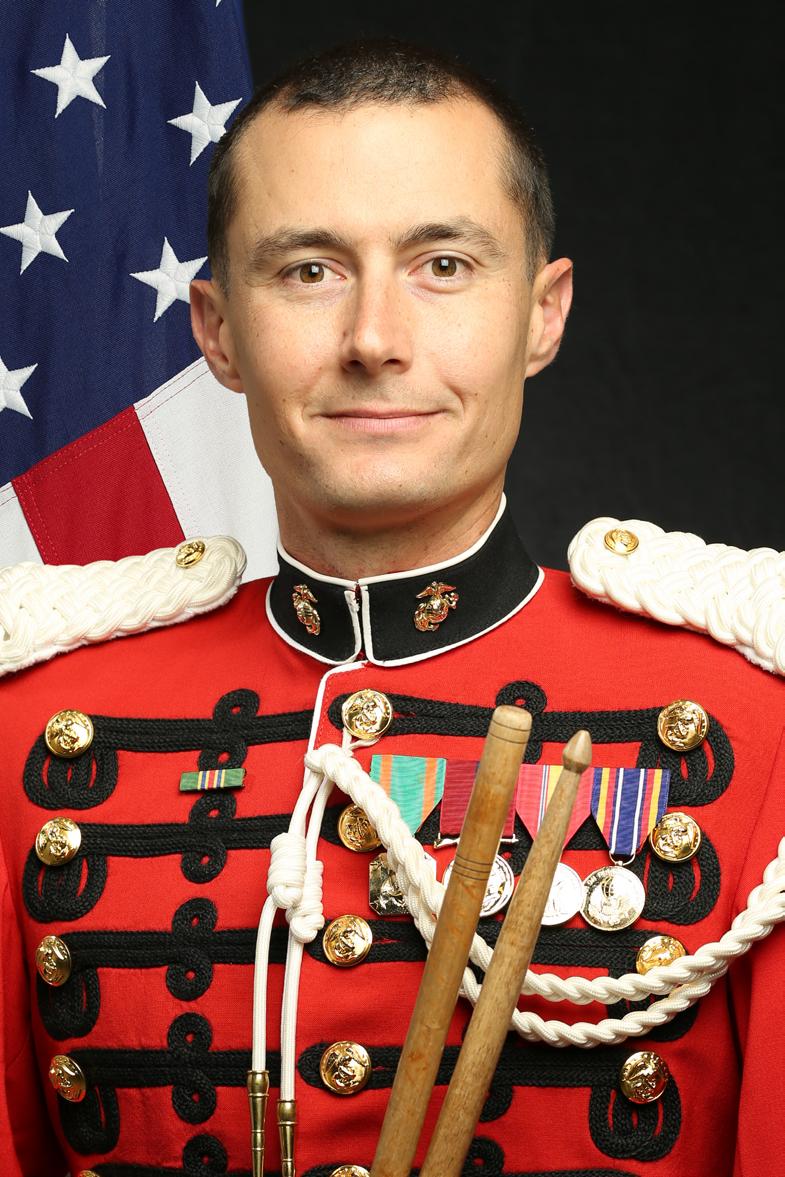
Metzger’s mother was a musician and made sure that he was exposed to live classical music at an early age. She provided the opportunity for him to attend Atlanta Symphony concerts regularly and to study privately with the best percussion professionals in town. Michael had “music in his blood”; and all through high school his focus was unwavering and became steadily more intense. “He contributed a lot to the high school band and was admirably patient with his peers that were not quite as intense about music. It was a treat to have a young musician that could literally play anything I threw at him,” adds Beach.

Richard Magner, Assistant Director and later Director of Bands at Parkview, had this to say about Michael… “Michael was always very serious. He has a musical family and they all approached music methodically. The thing I remember about Michael was that I never had a percussion student who, during lunch and advisement, would take a set of timpani and practice. We would be sitting in the office and say ‘Who is practicing timpani?’ Eventually, we stopped asking. It seemed like every free minute he had was practicing.”

Phillip on the other hand, was born into a family of full-time leaders in the Salvation Army. As most people know, the Salvation Army has a tremendous band program and tradition, particularly brass band. At an early age, Phillip was able to receive structured musical and technical training from those brass experts in addition to training in a life of service and spirituality. He was a student at Parkview for his first two years and then the family was transferred to another assignment. Beach recalls, “I remember him being an energetic, accomplished player and a skilled sight-reader, although I suspected that trumpet might not be the best fit for him. He later changed to euphonium and obviously that has worked out pretty well.”
“Philip was really different. He was kind of a jokester,” says Magner. “But the thing about Philip is he was interested in all areas of music. He also came from a musical family. We had him as a trumpet player. But he was always trying different instruments. He played some euphonium and dabbled in just about every brass instrument. Before class, it would not be unusual to see him pick up a trombone or some other instrument. He was the type of kid who could pick up just about any instrument and immediately sound decent. Philip was also very interested in jazz. Both (Michael and Philip) just really immersed themselves in all things music. Their personalities were polar opposites but their love of music was evident from the beginning.”
From the very serious to the jokesters, it is important to remember that every student seated in a music classroom has the potential to be one (or in this case, two) in a million. We can never be sure of the impact we have as music educators often until long after our final concert or final class with a group of students. At the end of our careers, when we look back at the beginning and our big lofty dreams, maybe we will see the impact we had on our students, and far greater - the impact they had on us.
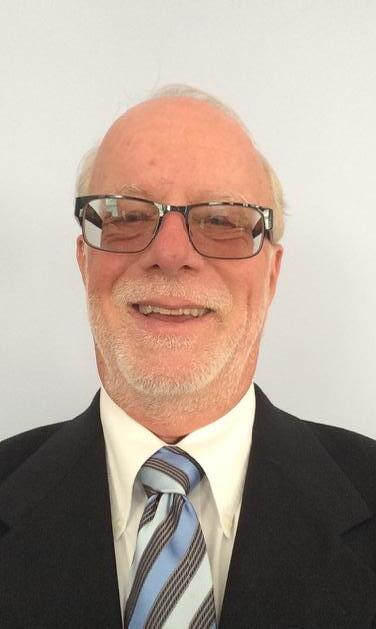
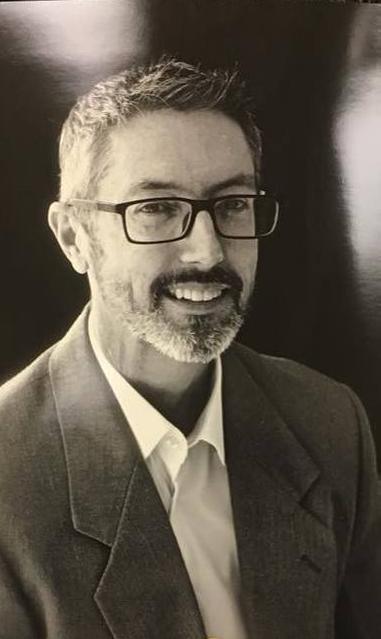
Allen Beach and Richard Magner are two extraordinary educators, who have taught countless students and are remembered fondly by so many. They are both currently retired and reside in Gwinnett County. Allen can still be found playing his trumpet in the Northwinds Symphonic Band, or in the Venue Jazz Orchestra in Flowery Branch. Richard directs musical theater productions at the School Street Playhouse.
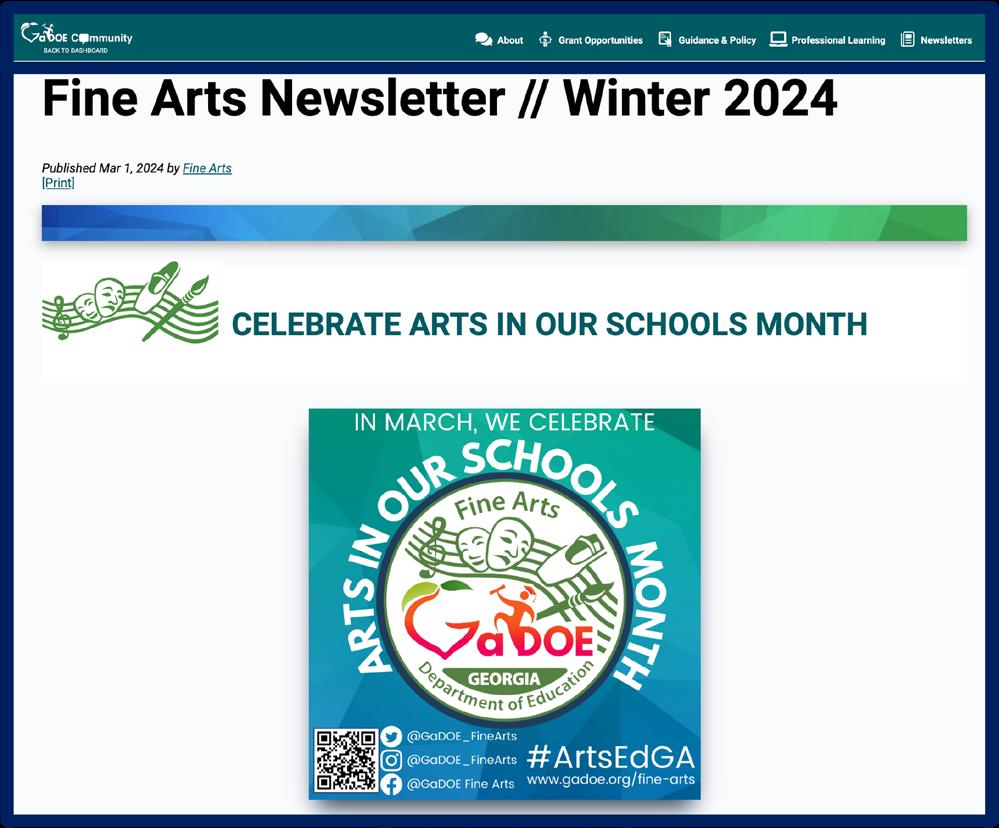
To provide Georgia’s Fine Arts Teachers with as many open lines of communication as possible, we’ve created a quarterly newsletter to share any updates, important information, or other noteworthy news all in one place! This can be found by clicking on the News tab on the left-hand navigation column on GaDOE Community. Check out the first of many GaDOE Fine Arts Newsletters to come. It’s fresh off the press! To get notified of future GaDOE Fine Arts Newsletters, be sure to press the Subscribe button on the right-hand column of the newsletter. If you have questions, please feel free to reach out to Casey Hall.
Did you know that the Fine Arts Department at the Georgia Department of Education (GaDOE) offers a wide variety of opportunities for continued professional learning as a Fine Arts educator? Our goal is to provide contentspecific professional development for Fine Arts educators across the state of Georgia geared toward a whole-child education for our students.
We offer FREE, content-specific, statewide professional development opportunities
through live and pre-recorded webinars, selfpaced online courses for music teachers, and an informative infographic on Digital Teaching and Learning in the Arts. Check out the GaDOE PL Events Catalog to register for these webinars.
Some topics discussed in these webinars include:
• Differentiation in the Music Classroom
• Behavior Basics: De-Escalation Strategies for the Music Educator
• The Balancing Act: Rebalancing Technology vs. Traditional Music Teaching Methods
• Making Music Magic: Engaging and Budget-Friendly Music Activities
• Assessment in the Music Classroom
• TKES in the Music Classroom
• Ukulele 101 for the K-5 General Music Teacher
• Instructional Planning for the Music Educator
• Exceptional Children in the Music Classroom
• Bravo Behavior!
• It's A Mystery! Making Mysterious Lessons for the Elementary Music Classroom!

In addition, we have several, self-paced online courses for teachers to take as professional development, as needed. These courses are housed in the Georgia Learns PD Hub, which can be found via your school district's
Statewide Longitudinal Data System (SLDS) platform.
The following courses for Music are currently available in the Georgia Learns PD Hub:
• Introduction to Music for the K-5 General Education Teacher
• Best Practices in the ES Music Classroom
• Supporting Students with Disabilities in the ES Music Classroom
• Opportunities for MS + HS Students with Disabilities in Music
If you have additional questions regarding our professional development opportunities, please contact Casey Hall.
In addition to the professional learning opportunities above, we also provide a multitude of FREE, supplemental Fine Arts Instructional Resources (over 5,000+!) for Fine Arts teachers to use as supportive tools in their teaching practice. These resources include curriculum maps, unit plans, lesson plans, lesson materials, presentations, and even some student manipulatives! In addition, we have also developed sample Arts Integration lessons and multiple instructional videos for teachers to use as needed.

These resources are housed on the GaDOE Inspire platform which can be found via your school district's Statewide Longitudinal Data System (SLDS) platform. Please see this support document to find these resources, if you may need them.
If you have additional questions regarding the GaDOE Inspire or our Fine Arts Instructional Resources, please contact Casey Hall.
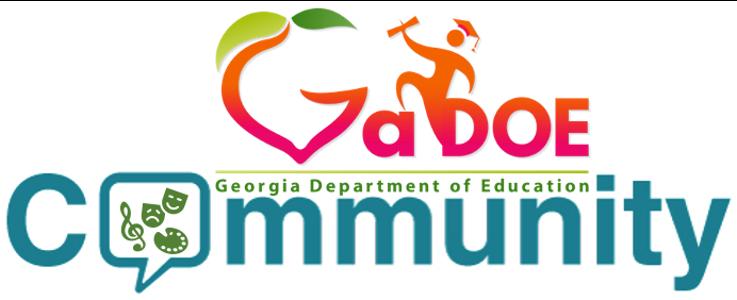
Do you often feel lonely in your school building or district as a music educator? Do you find it hard to feel supported as a music teacher or have administrators who don't fully understand our specialized content areas? Do you wish there was a way to seek support, encouragement, and guidance from other music teachers and administrators across the state of Georgia? Do you crave collaboration and connection with other likeminded music teachers? Then we have the perfect place for you!
In addition to all of these great opportunities, the Georgia Department of Education has launched a new, innovative platform called GaDOE Community! The goal of this platform is to provide content-specific, virtual professional learning communities (PLCs) for GMEA Fine Arts teachers, administrators, and GaDOE staff the opportunity to collaborate, connect, and share thoughts, strategies, resources, and encouragement all on a virtual platform. Georgia music teachers can join PLC groups such as Band, Chorus, General Music, Orchestra, and Music Technology. Be sure to check out our introductory video about this new, collaborative platform: GaDOE Community Commercial. Georgia music teachers can join today for FREE by creating an account using your school district email account. We can't wait to connect and collaborate with you in the future!
If you have additional questions regarding GaDOE Community, please contact Casey Hall.
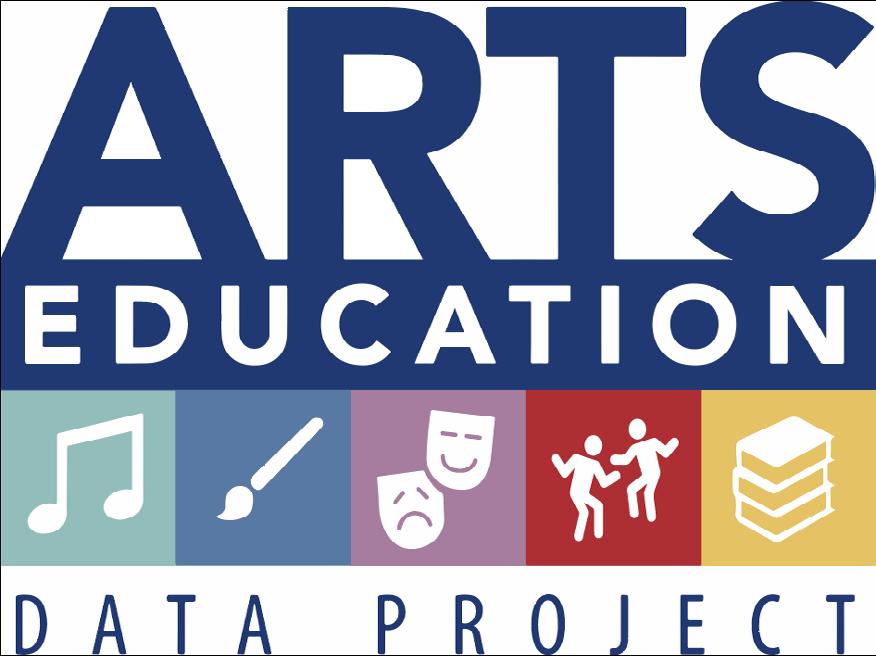
THE NEWLY UPDATED ARTS DATA DASHBOARD IS NOW LIVE!
The GaDOE Fine Arts Department has partnered with the Arts Education Data Project to provide an in-depth look at access to Arts Education in the state of Georgia over the past several years. We are happy to announce that the Arts Data Dashboard has been updated with new data from the 2021-2022 AND 20222023 school years. The Arts Data Dashboard allows users to view arts access statewide, see arts courses taught by schools, and the number of art disciplines taught (dance, music, theatre, visual, and media arts).
Through this partnership, important questions like the following have been asked:
• Which schools provide access to arts education and in what disciplines (Dance, Music, Theatre, Visual Arts, Media Arts)?
• How many students are participating?
• How many arts teachers are providing instruction?
• Who has access to arts instruction?
• Most importantly, who does not?
• How have the answers to these questions changed over time?
This initiative is accomplished by taking data gathered by school districts and the GaDOE, standardizing the data, and then transforming it into a publicly available interactive dashboard, updated annually to reflect the true status of arts education in every school, at every grade level for every student. You can take a look newly published Arts Data Dashboard today!
If you need support navigating the dashboard, there is a demo video that is about 8 minutes long that goes through how to use it on the Table of Contents page (TOC).
If you have additional questions regarding the Arts Data Dashboard, please contact Jessica Booth.
Do you follow GaDOE Fine Arts on Social Media? Stay up to date on all things happening with the Fine Arts from all across the state of Georgia by following and using the tag #ArtsEdGA. Be sure to follow GaDOE Fine Arts on all major platforms: Facebook | Twitter | Instagram | YouTube
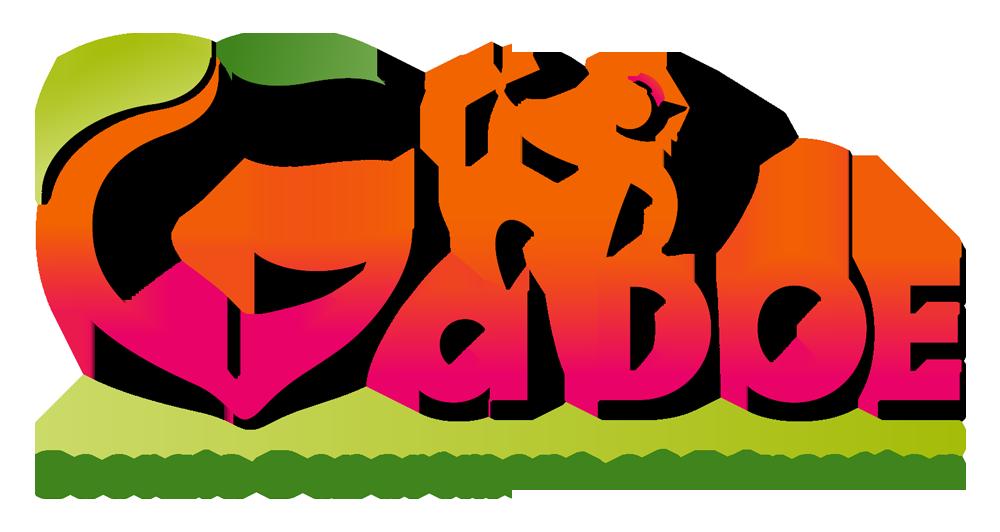
We’re training the next generation of scientists and engineers who will transform the ways we think about music, understand music, make music, and share music.
Our students cultivate their musicianship while learning engineering, computing, psychology, and design skills.
Our programs are tailor made for students who want to develop both their artistic and technical sides.
Our ensembles unite students from every major at Georgia Tech.
Chamber Choir
Chorale
Concert Band
Concert Orchestra
Glee Club
Jazz Ensembles and Combos
Marching Band and Pep Band
Rock & Pop Ensemble
Percussion Ensemble
Symphonic Band
Symphony Orchestra
Treble Choir
Interested

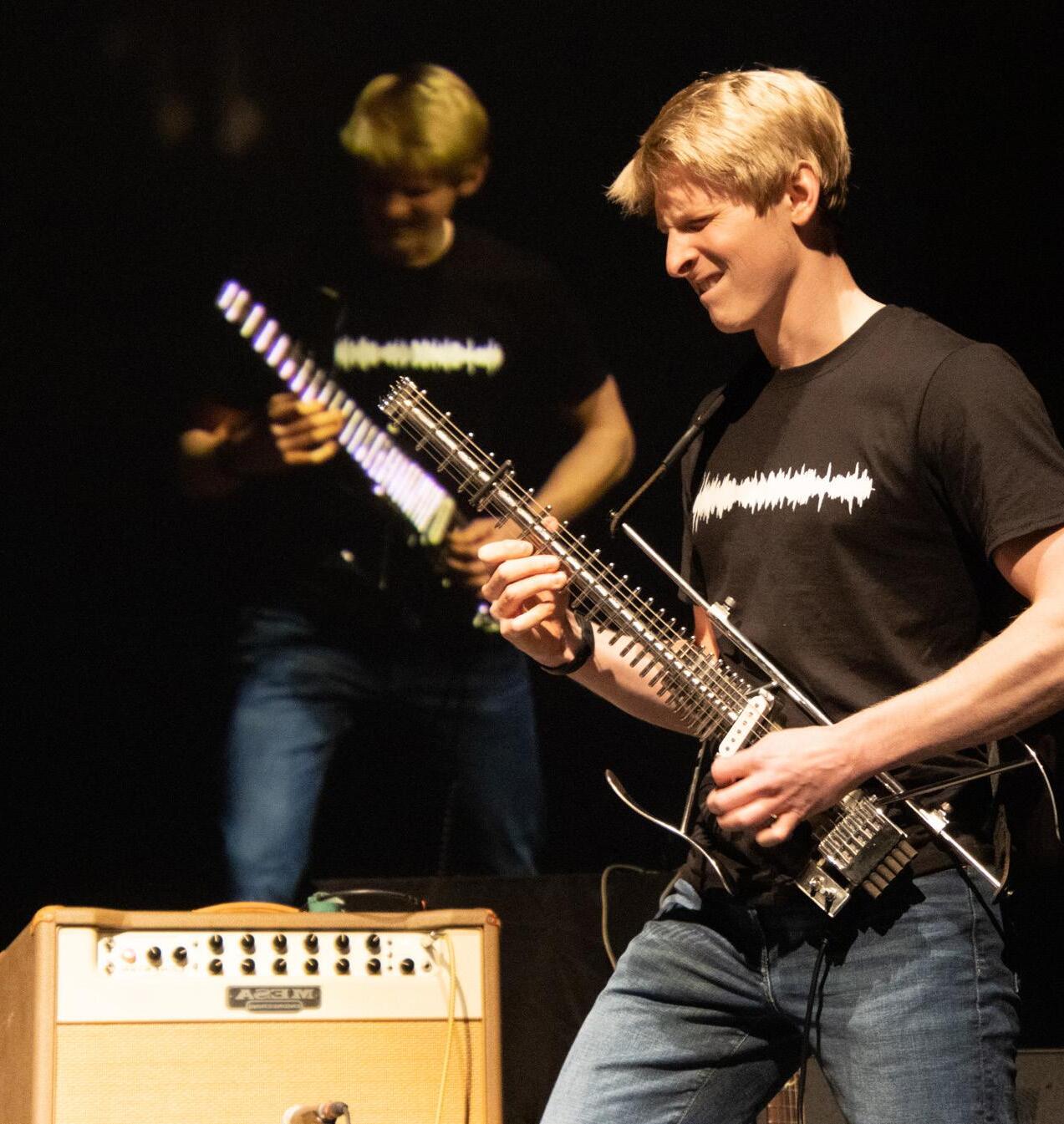
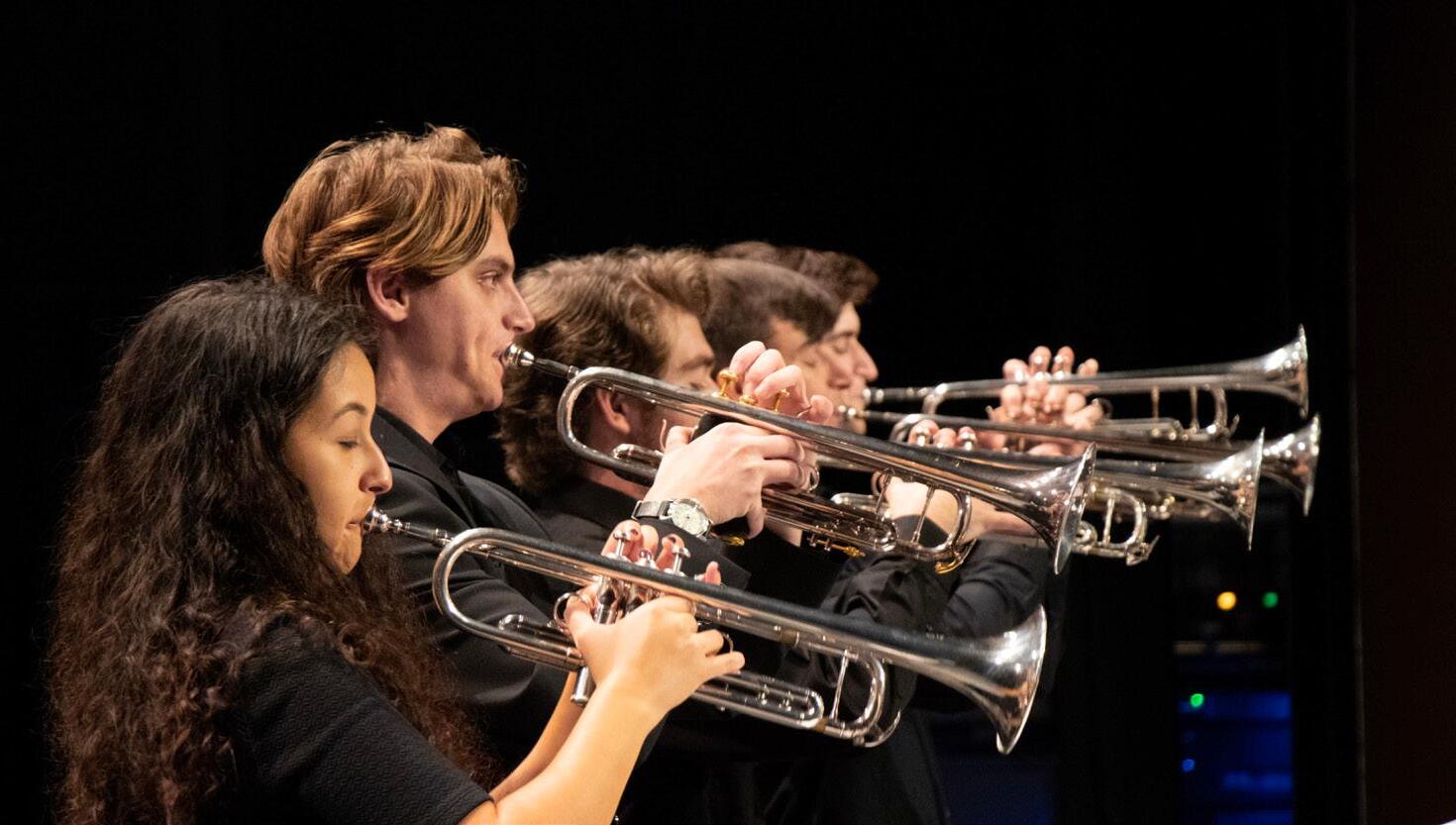



"The journey is what is truly important and what ultimately makes the difference for each of us and our students."